LAKIN LECTURE

Arno Rosenfeld, a reporter for The Forward, shed light on the issue of antisemitism








SHOFAR WORKSHOP























Children prepare shofars at Temple Chai ahead of the holidays


Jewish soldier awarded Purple Heart in Peoria more than a century after his service

On Sept. 28, 1917, only a few months after the United States entered World War I, David Shapiro became a private in the U.S. Army. His regiment, the 82nd Division’s 326th Infantry Regiment, Company E, trained the Jewish soldier to be a rifleman, an expert in placing well-aimed fire on the enemy. A year later, that training was put to the test when he and his fellow soldiers were fighting deep in the northeast of France.
When they came under heavy enemy fire amid the Battle of Saint-Mihiel, the first large offensive in the war launched by the Americans, Shapiro had to take cover in a muddy trench. He didn’t know that it was saturated with mustard gas, a notorious chemical weapon deployed by the German forces. Within minutes, his eyes swelled shut, his skin felt as if it were on fire and his lungs started to fail him. Luckily, he was able to climb out of the trench and called for a medic.
Though Shapiro’s legs were covered with severe burns and blisters and he had trouble breathing, his respite in the medical unit lasted less than a week before he was returned to the front — just in time to participate in the Meuse–Argonne Offensive, one of the war’s largest, deadliest and final battles. Within a few weeks, the war was officially over and Shapiro, an immigrant from Lithuania, became a U.S. citizen in an expedited naturalization process for foreign-born soldiers before he left France.
While Shapiro had fought bravely after being seriously wounded, he did not receive any special recognition from the military, even after being honorably discharged on June 5, 1919. However, that wrong was righted on Wednesday, Sept. 6, when he posthumously received a Purple Heart, the oldest active military decoration, which is awarded in the name of the president to those wounded or killed in action.
The special ceremony took place in Peoria’s Freedom Plaza Arizona with 125 people in attendance, including U.S. Rep. Debbie Lesko (R-AZ) and Brigadier General Lonnie J. Branum. The Arizona Air National Guard’s 161st Air Refueling Wing provided the Honor Guard, posting of the colors and playing of the National Anthem. Army Captain Erin Hannigan was the emcee and both Branum and Lesko offered praise and thanks for Shapiro’s service.

SEE PURPLE HEART, PAGE 2


HIGH HOLIDAYS | 14
| 6
SEPTEMBER 15, 2023 | ELUL 29, 5783 | VOLUME 75, NUMBER 25 $1.50
HEADLINES
1948 2023 YEARS
Paris mayor revokes Mahmoud Abbas’ top honor after he spreads Holocaust falsehoods An Israeli flag football team forfeited a game on Shabbat. It won the European championship anyway.
NATIONAL INTERNATIONAL KEEP YOUR EYE ON jewishaz.com
What’s Jewish about the jam band Phish? Many things, according to a new book.
ISRAEL
SHANNON LEVITT | STAFF WRITER
Pictured from left: Gary Shapiro, Fred Shapiro, Brigadier General Lonnie J. Branum, U.S. Congresswoman Debbie Lesko and Edward Shapiro. Courtesy of Edward Shapiro
One former transportation planner looks back (and ahead) at light rail in Arizona
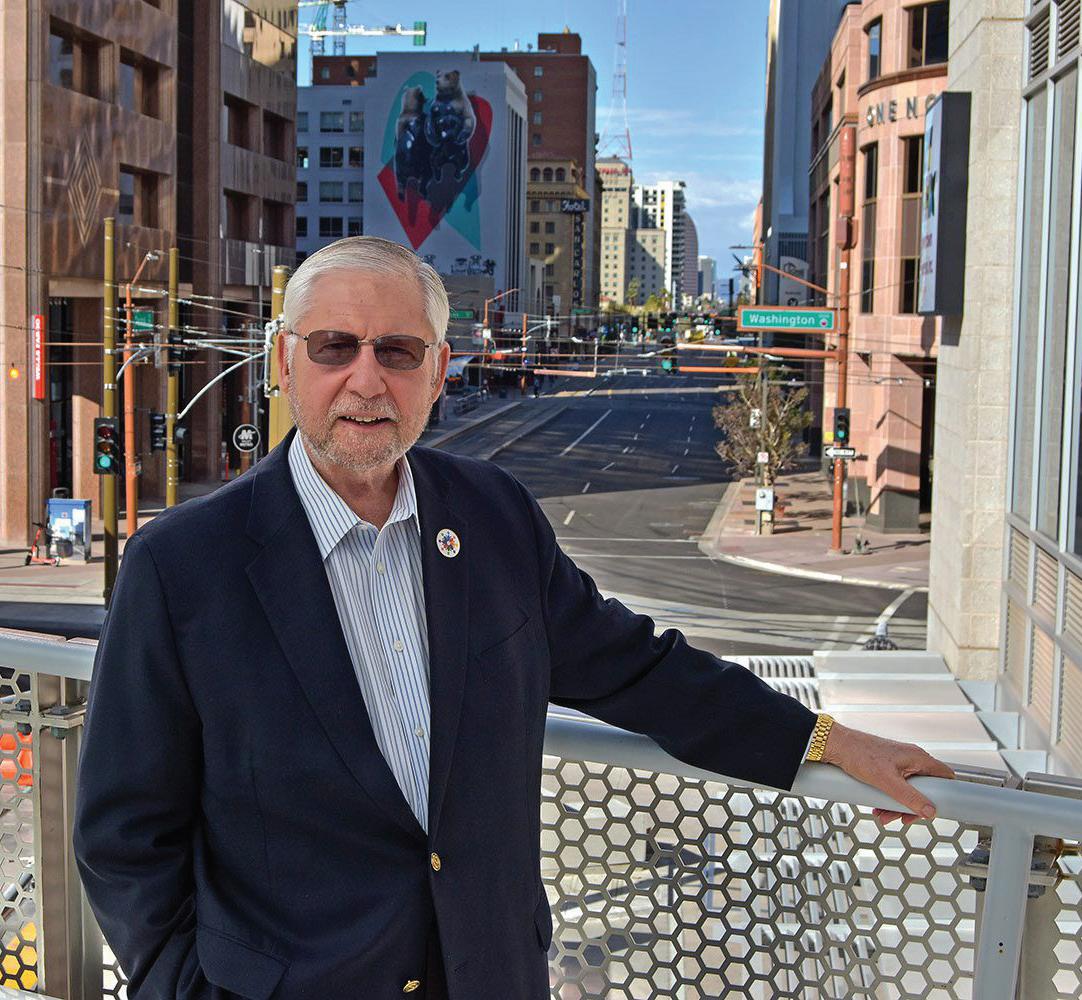 SHANNON LEVITT | STAFF WRITER
SHANNON LEVITT | STAFF WRITER






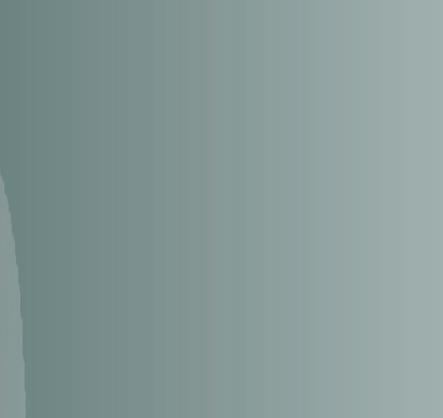




In late July, when Arizona’s spring legislative session finally came to an end — tied for the longest-lasting session in the state’s history — there was a deal to allow Maricopa County residents to vote on Proposition 400, a 20-year extension of a half-cent sales tax for transportation funding.
The $24 billion infrastructure bill’s passage was often in doubt but after months of negotiations between affected cities, the Hobbs’ administration and Republicans with a one-seat majority in Arizona’s House and Senate, it will be on the ballot for taxpayers to decide its fate.
Retired Arizona Public Service (APS) executive Martin Shultz followed the bill’s peregrinations from the sidelines, calling the effort to convince many legislators of the need for the funding “a war.”
Since his 2013 retirement as APS’ vice president of government affairs, he’s lent his expertise to various political leaders on a pro bono basis “as a way to give back to the community,” he said.
Shultz, a member of Scottsdale’s Congregation Beth Israel (CBI), was one of the people who created the idea for a transportation sales tax in the 1980s that eventually became Prop. 400.

“We had not relied on property taxes except for bonds, schools and general city services, and we didn’t want to rely on it for transportation,” he told Jewish News.
Before being recruited by APS, Shultz was the chief of staff for three successive Phoenix mayors: John Driggs, Tim Barrow and Margaret Hance. In the early 1980s, Shultz, who realized that his city was facing exponential growth, joined Republican House Majority Leader Burton Barr and various members of the business community to do something about it.

“We decided we have to get our act together with regard to funding a comprehensive transportation plan,” Shultz said.

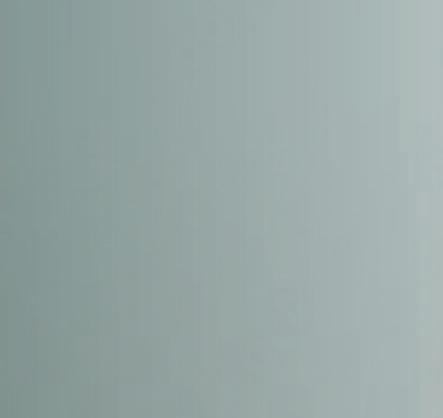
Unfortunately, the plans they drew up weren’t as robust as they needed to be, he said in retrospect.
During his 32 years at APS, he helped with community development and worked with city and county leaders.
According to Shultz, 40 years ago, too few of the city’s leaders gave much consideration to transportation facilities.
“We did not have a freeway or development for sophisticated streets — and zero with light rail,” he said. “People were asking themselves, ‘Are we urbanizing?’ Damn straight is the answer. We have to grow up to the fact that we’re a large urban area and make decisions on that.”
In 1984, Shultz was part of the ValTrans
campaign, which would have used part of the regional sales tax to create a 103mile elevated rail system modeled on Vancouver’s light rail system in Canada.
One transportation tax proposal was separated into two ballot measures. Voters passed a half-cent sales tax for roads and highways in 1985.
Shultz and his colleagues tried to sell people on the light rail system for its ability to reduce pollution while expanding options for getting around Greater Phoenix. However, voters overwhelmingly rejected ValTrans in a special election four years later, siding with its critics who said the plan was too complicated and would cost too much.
Former Phoenix Mayor Terry Goddard, who also advocated for ValTrans, blamed the legislators who split the original proposal into two measures, telling Axios Phoenix they turned ValTrans into “the biggest, sourest pill they could possibly make it.”
Looking back now, Shultz suggested that ValTrans might have been ahead of its time, “at least in the minds of the voters.”
The inability to have “a rational discussion” around funding transportation ideas was a big disappointment to him. “We’ve had a struggle because some didn’t quite get it and didn’t think we were urbanizing like we are and have. ValTrans was a disappointment but we advocates never stopped. We just kept going,” he said.
If voters approve the half-cent sales tax for another 20 years, most of the money will go to highways, roads and intersections, with 37% for public transit. Prop. 400 also stipulates that money spent on public transportation can go toward upkeep of the light rail but no extensions.
On X, the social media platform formerly known as Twitter, another CBI congregant and member of the Arizona Freedom Caucus, Republican Rep. Alexander Kolodin, called Prop. 400 “a shell game that will provide funds for other transit projects and allow existing funding streams to be redirected to pay for light-rail extensions.”
Shultz, a self-proclaimed realist, isn’t disheartened by such rhetoric and believes that should Prop. 400 pass, the funding it provides will be adequate.
“You have to be realistic and say what can I afford?” he said. In this, he echoed Gov. Katie Hobbs’ statement released after she signed the bill:

“I’m proud to sign this bill into law that will create hundreds of thousands of jobs, build and attract businesses and help make Arizona the best place to work, live and raise a family. With support spanning across political parties, businesses, work-
ers and everyday Arizonans, Prop 400 will secure our economic future and give every Arizonan an opportunity to succeed in our thriving economy.”
Shultz is also an optimist, though maybe not as much as Hobbs is, he joked.
“I just turned 79 and the governor and her people asked me if I would be willing to help the next time the tax needs to be voted on, in another 20 years.” JN
HEADLINES JEWISHAZ.COM JEWISH NEWS SEPTEMBER 15, 2023 3
COURTESY
Join us to remember and honor your loved ones. S unday, S eptember 24, 2023 9 T ishre i 5784 10:00 A.M. Mt. Sinai Cemetery 24210 North 68th Street, Phoenix (o Pinnacle Peak Road) Please RSVP with number attending info@mtsinaicemetery.com (480) 585-6060 To visit the g rave of a loved one during the High Holiday season is a Jewish custom. @ Arizona’s Only Jewish Funeral Home @ Arizona’s Only Member of the Jewish Funeral Directors of America @ Arizona’s Only Jewish Owned & Operated Funeral Home @ Arizona’s Only Funeral Home Endorsed by the Entire Rabbinical Council Perlman Family (602) 248-0030 4538 North Sixteenth Street Phoenix, Arizona 85016 www.sinaimortuary.net email: office@azsinai.com
Former Phoenix Community Alliance Chair Marty Shultz pictured outside the Downtown Phoenix, Inc./PCA offices.
OF TAYLOR COSTELLO VIA DTPHX
Teens talk to other teens about antisemitism
SHANNON LEVITT | STAFF WRITER
Kimberly "Kimmy" Pasternack just started her senior year at Desert Mountain High School in Scottsdale. She’s already thinking about colleges next year, specifically on the East Coast. With classes, friends and the myriad volunteer work she does, one could say her plate is pretty full. Yet, Pasternack recently found time to contribute even more to her community.
In late May, she became the youth leader for Arizona Jews for Justice’s (AJJ) new teen fellowship program, as well as an AJJ intern. This is the first time AJJ has put together an all-teen fellowship cohort.



Nine teenagers, all Jewish high school juniors and seniors from Phoenix and Scottsdale, will be learning about social justice issues, strengthening Jewish identity with Torah studying and addressing antisemitism among their fellow teens.
“Sometimes kids say things or tell jokes and they don’t even realize what it means, and that’s something we can help with,” Pasternack said. “I haven’t been able to take action yet, but I know that teens
respond better to other teens and they will be more likely to listen to us than an adult who shares the same information.”
Citing a study published in Psychological Science, Pasternack said she and the other fellows started talking about the big impact they could have on raising awareness of antisemitism among their peers during an early August dinner, where they met for the first time.
Eden and Lauren Brodsky, Rena Etzioni, Garric Gordon, Ayelet Jaffee, Saturn Klein, David Sypes and Sophia Yudell are the other eight members of the cohort.
The Brodsky sisters, both juniors at Scottsdale’s Rancho Solano Preparatory School, learned about the AJJ fellowship through their father. They decided to apply because they liked the idea of combining tikkun olam with raising awareness about antisemitism.
“It’s important to stand up to antisemitism and not be silenced,” Lauren said. “This is a chance to attempt to erase some of the prejudice against Jews firsthand.”
Neither girl has faced antisemitism directly but Eden reported seeing swastikas on her school’s bathroom walls.
“I have been lucky not to have experienced antisemitism directly but I have seen stuff like swastikas on school desks, and seeing that at my Scottsdale school was surprising. I hope to be able to teach my peers about it,” Pasternack said.
She’s heard firsthand accounts from other people, including her parents, and knows what to look for.
“I was talking to some kids today about it and they don’t really understand how deep antisemitism goes. They say, ‘You look white and you aren’t discriminated against.
Is it really as big a deal as racism or xenophobia?’” she said.
As someone who believes deeply in promoting racial justice, Pasternack takes comments like these to heart. Her response is direct without being defensive.
“We don’t need to take attention from any group that experiences disparities but we should increase it for other groups and antisemitism gets less attention. That doesn’t mean racism and xenophobia should be addressed less, only that antisemitism should be addressed more,” she said.
The AJJ fellowship is designed to elevate the teens’ leadership potential and combat antisemitism while simultaneously developing strong Jewish ethics.
“We want them to be proudly Jewish and proudly active in spaces that they are helping make safe for Jews,” said Eddie Chavez Calderon, AJJ campaign director.
“We’ve had teens as volunteers and interns, but no structure dedicated to them before this, and we wanted to change that with this fellowship and focus on them. People think teens can’t make an impact due to their youth, but they have a unique opportunity to make a difference — they have the power, the willingness and frankly, the energy,” he said.
The fellows will meet every month for two hours. During their first official meeting on Sept. 3, they will begin with some Torah learning led by AJJ founder Rabbi Dr. Shmuly Yanklowitz and then jump right into discussing antisemitism — what it is and how to combat it.
Calderon plans to talk about issues such as economic justice, while pointing out how hateful stereotypes about Jews and money have been used to blame Jewish people for the plight of the poor and dispossessed.
Each meeting will offer education, hands-on experiences with direct advocacy and a grounding in Jewish ethics.
Pasternak, who said her Jewish identity isn’t fully developed yet, likes the religious aspect of the fellowship. Her mother is Reform and her father is Orthodox; she belongs to and became a bat mitzvah at the Reform Congregation Beth Israel in Scottsdale but she attends High Holiday services with her father at Ahavas Torah, an Orthodox synagogue, also in Scottsdale.
“It’s integral to everyone’s Jewish learning to be in the midst of diversity,” she said.
Pasternack is also part of the Center for
HEADLINES
LOCAL 4 SEPTEMBER 15, 2023 JEWISH NEWS JEWISHAZ.COM
REQUEST
–2024 FUNDING The Center for Jewish Philanthropy is now accepting 2024 Letters of Intent for programs and services that benefit the Greater Phoenix Jewish community. Funding for Israel and Overseas is by invitation only. Visit https://phoenixcjp.org/what-we-do/cjp-funding to read the 2024 Funding Guide and to apply. Questions or to discuss funding ideas, contact Sheryl Quen, Vice President, Community Impact squen@phoenixcjp.org phoenixcjp.org ● 480.699.1717
From left: Lauren Brodsky, Eden Brodsky and Kimberly Pasternack.
FOR LETTERS OF INTENT
Jewish Philanthropy of Greater Phoenix (CJP) Youth Philanthropy Board, where she first learned of the fellowship. Andrea Cohen, director of youth philanthropy at CJP, called Pasternack “a strong leader with a passion for helping others.”

The Youth Philanthropy Board members are asked to investigate grant applications having to do with youth programs and though several had to do with addressing antisemitism, most did so in an indirect way. AJJ’s proposal to focus directly on antisemitism with the help of teens was the kind of thing she was hoping to see.



“I was looking at it and realized it’s just the kind of thing we were looking for. Plus, I decided I needed to apply for it myself,” she said.
The day Pasternack turned in her application to Calderon, she felt at home



with the organization. She started helping out right away — buying goods for AJJ to hand out to those in need and doing media graphics and clerical work. She wasn’t content to wait a few months until her fellowship officially began.

“I strive to take part in as much social justice as possible; I’ve lobbied for DACA, pursued medical advocacy and had hands-on experience in multiple nonprofits,” she said.
Now, she’s prepared to turn her focus to antisemitism more fully.
“It’s a problem that won’t be fixed unless we speak up,” she said. JN
To learn more, visit arizonajewsforjustice.org.

HEADLINES LOCAL JEWISHAZ.COM JEWISH NEWS SEPTEMBER 15, 2023 5
COURTESY OF
FOR JUSTICE
Arizona Jews for Justice teen fellows
ARIZONA JEWS
Jewish News is published by the Jewish Community Foundation of Greater Phoenix, a component of the Center for Jewish Philanthropy of Greater Phoenix.
KIMBERLY
Call today! 602-639-5866 • jlipson@jewishaz.com Contact us TODAY to advertise in the 2024 Community Directory! GET NOTICED! REACH JEWISH HOUSEHOLDS IN THE GREATER PHOENIX METRO • Religious Life • Community Organizations • Camps / Schools & Education • Culture, Arts & Judaica • Celebrations • Businesses & Services • Health & Fitness • Senior Resources Don’t miss the chance to getnoticed–limited time onspecial pricing YOURRESERVE TODAY!AD
“I HAVE BEEN LUCKY NOT TO HAVE EXPERIENCED ANTISEMITISM DIRECTLY BUT I HAVE SEEN STUFF LIKE SWASTIKAS ON SCHOOL DESKS, AND SEEING THAT AT MY SCOTTSDALE SCHOOL WAS SURPRISING. I HOPE TO BE ABLE TO TEACH MY PEERS ABOUT IT.”
PASTERNACK
Jews are in ‘battle to define and defeat antisemitism’
SHANNON LEVITT | STAFF WRITER
Life in 20th Century America was not always kind to Jews. Thirteen U.S. synagogues were bombed between 1957 and 1977, Jewish Americans were disallowed from applying to many job openings that sought “gentiles only” and members of the U.S. Congress, even a chairman of the Joint Chiefs of Staff, openly used pointed antisemitic slurs and demanded the “the Jewish lobby” be broken.
In the following decades, antisemitic sentiment in the U.S. fell dramatically and systemic discrimination towards Jews all but disappeared. Jews felt so safe in this country that by 2013, a survey found that only 14% thought that antisemitism was even an issue.
However, 10 years later, that percentage is nearly triple and American Jews are talking more about antisemitism than they ever have.
Arno Rosenfeld, a reporter for the longstanding Jewish outlet The Forward, was in Tucson on Aug. 27 to shed light on the issue for the inaugural presentation of

the Tucson Jewish Museum & Holocaust Center (TJMHC) Lakin Lecture Series on Antisemitism.
The series is funded by a grant from the Alma and Ed Lakin Education Fund, established at the Jewish Community Foundation of Southern Arizona by their daughter, to honor her parents’ commitment to Jewish life, Holocaust education, the people of Israel and combating antisemitism.

The creators of the series decided to focus on contemporary problems to educate Jews and their allies, said Lori Shepherd, TJMHC’s executive director.

“We recognized that we needed to first define the issue and then try to explore the divergent perspectives if we want not only to parse this problem, but also fight this problem,” Shepherd said in her introductory remarks.
Rosenfeld began with a disclaimer for the nearly 300 people in the room and the 91 watching online that his talk would not be what they were used to hearing on the topic. The title of his lecture, “The


Battle to Define and Defeat Antisemitism
Today,” does not refer to “a battle between Jews and antisemites or even between Jews and an apathetic general public. It’s a battle being waged between Jews and that’s a difficult reality to confront,” he cautioned.
First, he sketched out the state of antisemitism in mid-20th century America, details that he gleaned from the work of the late Leonard Dinnerstein, a University of Arizona professor specializing in American antisemitism.
“If you read his work, you’ll learn that things were a lot worse for a lot longer than most of us realize,” Rosenfeld said.
The present is much different. American surveys consistently show Jews with the highest favorability of any religious group. When antisemitic violence happens now, politicians and other communities support the Jewish community, a far cry from earlier decades. The White House even created a federal strategy to counter antisemitism, which doesn’t exist for any other hatred.
Yet, there’s “a pervasive sense lately that things are getting desperate for Jews,” Rosenfeld said and quoted a political pundit who told the Washington Post, “We’re back to ‘keep your head down. No one has your back.’”
Antisemitism is Rosenfeld’s main journalistic beat and he regularly investigates why so many Jews are more worried about it now. He put the question to Rabbi David Sapperstein, the senior advisor for policy and strategy for the Religious Action Center and the Union for Reform Judaism.

Sapperstein explained that even though things were objectively worse for American Jews 60 years ago, “there was a clear feel-
ing of how swiftly things were becoming better.” That feeling has vanished. “For the first time in American history, as Rabbi Sapperstein put it, we might be going backward,” Rosenfeld said.
Rosenfeld laid out some of the most prominent reasons Jews feel less secure now, beginning with the political rise of Donald Trump and the far-right extremists who felt emboldened by his election to the presidency in 2016. Trump defended the white nationalists chanting “Jews will not replace us” in Charlottesville in 2017. In 2018, a man who believed that Jews were replacing white people with immigrants murdered 11 Jews at a Pittsburgh synagogue, the deadliest antisemitic attack in U.S. history.
By 2019, 40% of American Jews said antisemitism was a very serious problem and the percentage hasn’t dropped since.
Here is where things get interesting, according to Rosenfeld. Though a majority of American Jews cast antisemitism mainly as a problem of the political far right, the Jewish establishment did not agree. Large advocacy organizations like the Anti-Defamation League (ADL), the American Jewish Committee (AJC) and the Jewish Federations of North America (JFNA) worried about the far right, but they considered what they saw as efforts to delegitimize Israel on the far left as equally threatening.
Many Jews felt that antisemitism was being used by people who gained political power by sowing fear and division, “the explicit strategy of the right wing in America and around the world,” Rosenfeld said.
But that view was not popular for the
HEADLINES
LOCAL 6 SEPTEMBER 15, 2023 JEWISH NEWS JEWISHAZ.COM
TUCSON JEWISH MUSEUM & HOLOCAUST CENTER SEE LECTURE, PAGE 8 DANIEL
S e c u r i t y E x p e r t C e r t i f i e d C o a c h S U N D A Y , O C T 2 2 N D 1 0 A M T O 2 P M HTTPS://EMPOWER.CORSIZIO.COM R E G I S T R A T I O N : - T H E S A F E T Y A N D S E C U R I T Y O F Y O U R J E W I S H S Y N A G O G U E , B U S I N E S S , C O M M U N I T Y , A N D Y O U R S E L F - H O W T O P R E V E N T A N D R E S P O N D T O A N T I S E M I T I S M , H A T E C R I M E S , A N D O T H E R T H R E A T S - H O W T O B A L A N C E Y O U R S E C U R I T Y N E E D S W I T H Y O U R C O M M I T M E N T T O C R E A T I N G A W E L C O M I N G A N D I N C L U S I V E E N V I R O N M E N T F O R A L L J E W S - W A Y S T O E X P A N D Y O U R S A F E T Y N E T B Y F O R M I N G R E L A T I O N S H I P S W I T H O T H E R L O C A L H O U S E S O F W O R S H I P I N Y O U R A R E A . W H A T Y O U W I L L L E A R N F R O M T H E S E M I N A R ? F ree E v ent! Registration req uired ! Vendors & More! D i r e c t o r o f P o l i c y a n d L e g i s l a t v e A f f a i r s a t I s r a e i - A m e r i c a n C o a l i t i o n f o r A c t i o n JAKE BENNETT ***Along with a p anel of exp erts! *** SECURITY SEMINAR
Arno Rosenfeld gave the inaugural presentation of the Lakin Lecture Series on Antisemitism on Aug. 27. COURTESY OF
THE
SCHNEIDER, CPP
ATTENTION HOLOCAUST SURVIVORS
If you are a Holocaust survivor who has not received any compensation payment (either from the Claims Conference or German or Austrian governments), please call us immediately. You may be entitled.
The Claims Conference has negotiated the following liberalizations of criteria to compensation funds with the German government HARDSHIP FUND – SUPPLEMENTAL PAYMENT Jewish Nazi victims eligible for the Hardship Fund have been approved for annual Supplemental Payments of approximately €1,200 in 2023 through 2027. If you already received a Hardship Fund Supplemental Payment (meaning payments over the two years of €2,400), you don’t have to apply again. You will only need to provide Proof of Life. Please register with Paneem for the 2023 payment (you will need to do this every year through 2027). You will hear from us to validate via Paneem. If you have moved, or don’t hear from us, please contact us. If you have never applied, the deadline for the 2023 payment is December 31, 2023.
Holocaust survivors who were previously ineligible to receive the Supplemental Hardship Fund payments because they received one-time German government payments (for example from Länderhärtefonds) are now eligible to apply for the supplemental payment. Survivors who receive a German or Austrian pension for persecution during the Holocaust (BEG, Article 2 Fund, Regional Specific Program (RSP), Austrian Victims Pension (Opferausweis)) are not eligible to receive the Hardship Supplemental Fund Payment.
NEWLY APPROVED OPEN GHETTOS: Jewish Holocaust survivors who were persecuted in the open ghettos identified below, for at least three months, may be eligible for a monthly pension from the Article 2 or CEE Fund:
• In Romania, survivors persecuted in Bucharest, Adjud, Beiuş, Blaj, Caracal, Dumbrăveni, Făgăraş, Haţeg, Luduş, Mediaş, Nălaţ-Vad, Oraviţa, Păclişa, Piteşti, Şărmaşu, Sighişoara, Târnăveni, Tinca, Turnu Severin, Arad, Braila, Brasov, Buhusi, Călărași, Deva, Dorohoi, Fălticeni, Huși, Ilia, Lugoj, Ploeşti, Podul Iloaiei, Sibiu, Suceava, Târgu Frumos, Timisoara, Turda, Alba Iulia, BaCau. Barlad, Botosani, Buzau, Costanta, Craiova, Focasni, Galatz, Harlau, Iasi, Pascani, Piatra Neamt, Roman, Romanicu Sarat, Stefanesti, Targu Mures, Targu Neamt, Tecuci, and Vaslui, between August 1941 and August 1944;
• In Bulgaria, survivors persecuted in Dobrich, Kazanlŭk, Kŭrdzhali, Lovech, Nevrokop (a.k.a. Gotse Delchev), Nikopol, Plovdiv, Popovo, Preslav, Provadiya, Turgovishte, and Yambol (Jambol), between September 1942 and September 1944. In addition, all pension recipients who were in one of the open ghettos in Romania or Bulgaria named above and born after January 1, 1928, may be entitled to a one-time payment from the Child Survivor Fund administered by the Claims Conference.
Note: Jewish Nazi victims from these open ghettos in Romania and Bulgaria may also be entitled to a pension from the ZRBG (Ghetto Pension). This pension is not administered by the Claims Conference. Please contact a German embassy or consulate near you or https://www.germany.info/us-en/service/07-Pension/ghetto-financial-compensation/920638
CHILD SURVIVOR FUND
In addition to the other eligible applicants listed above, the Child Survivor Fund may also provide a one-time payment to those who are among the One Thousand Children amounting to €2,500 (approximately $2,500) per person. Approximately 1,400 children were forced to leave their parents behind when they were rescued from Nazi Germany and Nazi-occupied countries and taken to the United States. Please contact us to learn the details of eligibility.
PAYMENT TO SPOUSES OF DECEASED ARTICLE 2/CEE FUND BENEFICIARIES
The Claims Conference will provide payments to eligible spouses of deceased recipients of the Article 2, Central and Eastern European (CEE) Funds. A spouse of an Article 2/CEE Fund beneficiary may, upon the death of the Article 2/CEE Fund beneficiary, be entitled to receive payments for up to 9 months, paid in three quarterly installments, if the following conditions apply:
1. The spouse is alive at the date of the payment; and
2. The spouse was married to the Article 2/CEE Fund beneficiary at the time of death of the Article 2/CEE Fund beneficiary; and
3. The Article 2/CEE Fund recipient passed away at any point while he or she was receiving a payment from the program.
The spouse of a Holocaust survivor must be alive at the time of each payment. Other heirs, including children, are not entitled to receive any payment. To download an application from our website, please go to: www.claimscon.org/apply
The German government established a similar program for surviving spouses of monthly Holocaust compensation pensions made under German Federal Indemnification Law, other German federal compensation laws or governmental programs, (sometimes referred to as Wiedergutmachung), for Holocaust survivors who passed away January 1 st, 2020 or later. For more information, please check with the BADV or download the application from the BADV website at https://www.badv.bund.de/DE/OffeneVermoegensfragen/UebergangsleistungenEhegattenNSOpfer/antrag.html.
REGION-SPECIFIC PERSECUTION (RSP) PENSION A pension program was created for survivors, who currently do not receive pensions who were, for at least three months in: (i) the Leningrad Siege (ii) persecuted in Romania or (iii) hiding in France. Income/Asset criteria of the Article 2/CEE Funds apply. Meeting the RSP persecution criteria shall entitle a survivor to a payment from the Child Survivor Fund if the age criteria (born in or after 1928) is met.
For more information, contact: CLAIMS CONFERENCE
PO Box 1215, New York, NY 10113
Tel: +1-646-536-9100 Fax: +1-212-679-2126 Email: info@claimscon.org
HEADLINES JEWISHAZ.COM JEWISH NEWS SEPTEMBER 15, 2023 7
Jewish establishment, who preferred a nonpartisan strategy. Rosenfeld explained that from the beginning of the Trump administration, continuing through today, national Jewish organizations combined their efforts to combat antisemitism with a defense of Israel. This “swivel-headed” approach is meant to identify threats from both the left and the right. Thus, it argues that support for the Boycott, Divestment, Sanctions (BDS) movement is as dangerous as white supremacists calling for the mass murder of Jews.

Getting governments, corporations and campuses to adopt the International Holocaust Remembrance Alliance’s (IHRA) working definition of antisemitism became the next front in their battle. The definition has become controversial because of the 11 examples it is packaged with, most involving Israel.







“The Jewish establishment needs those examples included because they want people to accept their view that Jewish identity includes a baseline level of support for Israel; therefore, it’s just as antisemitic to reject that as it would be to deny the Holocaust,” Rosenfeld said.
To implement something controversial, “you emphasize, sometimes even overstate, the scale of the problem you’re trying to solve,” Rosenfeld said.


This meant telling leaders that there’s an “unprecedented wave of antisemitism and Jews are afraid to walk down the streets. They can’t even attend college anymore, and all we’re asking for you to do is adopt this simple definition of antisemitism,” he paraphrased.
Several wealthy and politically conservative Jews — Ronald Lauder, Paul Singer and Robert Kraft, for example — have started organizations to combat antisemitism and have spent significant money on advertising that portrays Jews “as a forsaken group” that is constantly under attack. One such ad showed a Jewish boy being harassed and text saying “If you’re Jewish, somebody hates you.”
All of this comes at a cost, Rosenfeld said. “Fear of antisemitism and our belief in its widespread prevalence can sometimes eclipse and even shape our reality.” That’s what happened last year in Tucson.




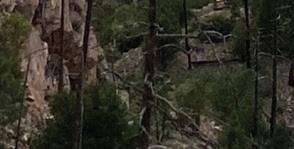



Rosenfeld learned of the campus murder of University of Arizona Professor Thomas Meixner through an opinion article in the Arizona Republic claiming that an inability to take antisemitism seriously was responsible.
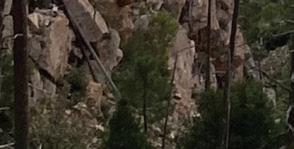
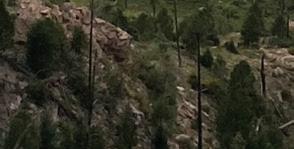

The graduate student who allegedly killed Meixner sent him many antisemitic texts, seeming to believe the professor was Jewish, though he was not; the murder happened on Yom Kippur across the street from the Hillel building, where dozens of

Jewish students were observing the holiday; law enforcement knew about the antisemitic threats but did not warn the Jewish community.
However, when Rosenfeld investigated the story further, he found things were much more complicated. The alleged killer was angry with Meixner about his grade; he sent anti-Asian and anti-gay messages and threatened faculty he knew were not Jewish. He sexually harassed women on campus, frightened his neighbors and attacked his parents. The administration and law enforcement didn’t act on any of his violent threats even though at least one professor started wearing a bulletproof vest to work.

The Republic article was written by the national director and CEO of the Secure Community Network two months after the murder and other Jewish organizations and media reposted it. Suddenly, it was all over social media again and people made angry calls to the campus Hillel demanding a response.
The flurry of posts didn’t explain that Hillel officials started talks with the administration immediately following the murder and kept the Hillel and local Jewish community apprised of everything happening.

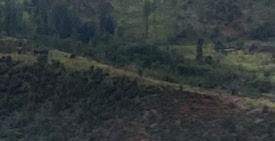









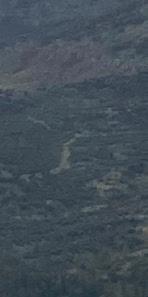
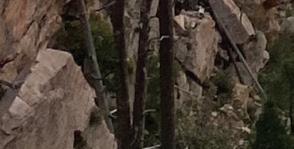


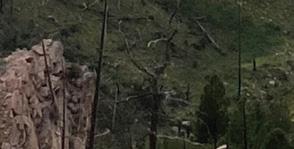



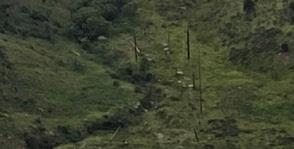



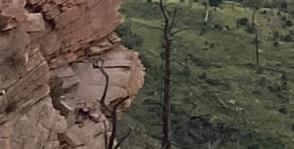



“The social media outrage brought our community back to square one of the healing process,” one student told Rosenfeld. Another said, “I hate to make it seem like people were jumping on the bandwagon,
but I think it was just seen as another drop in the bucket” of campus antisemitism.
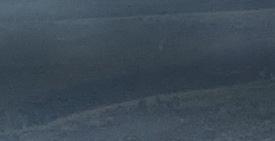





In his reporting on college campuses around the country, students have told Rosenfeld that even though they have never experienced antisemitism, they are wary of drawing attention to their Judaism because they’ve seen the reporting of the rise of anti-Jewish sentiment and online outrage.
He acknowledged the reality and danger of antisemitism, something he has personally faced.
“There’s a price we pay for how we choose to think about antisemitism and often it’s a price we pay in fear,” he concluded. When balancing safety and fear, “our communal institutions will duke it out” while individuals must make their own decisions.
Shepherd was pleased with the first lecture’s big turnout, although “not everyone agreed with everything Arno offered in his talk.” That’s OK though because agreement is not the goal of the series; rather it’s “to open up dialogue and conversation among the community,” she said.
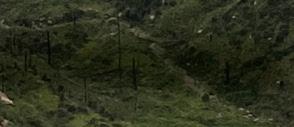
By that measure, the night was a resounding success. “Arno absolutely got people thinking and talking,” she said. JN












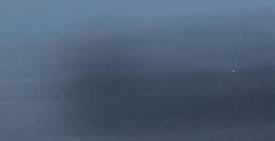
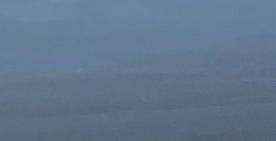
















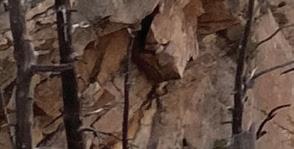











The Lakin Lecture Series on Antisemitism is free and available online. The next lecture is Thursday, Sept. 28. For more information, visit jewishhistorymuseum.org.

HEADLINES
LOCAL 8 SEPTEMBER 15, 2023 JEWISH NEWS JEWISHAZ.COM LECTURE CONTINUED FROM PAGE 6 1948 2023 YEARS Be a part of our upcoming special sections Jewishaz.com • 602-639-5866 • jlipson@jewishaz.com PHOTO BY SHANNON LEVITT October 6: Senior Lifestyle • Health October 20: Camp & School • Home Services • Legal A airs Shana Tova JOIN TEMPLE SOLEL FOR THE HIGH HOLY DAYS! VISIT TEMPLESOLEL.ORG 480.991.7414
Jewish News says goodbye to one of its own
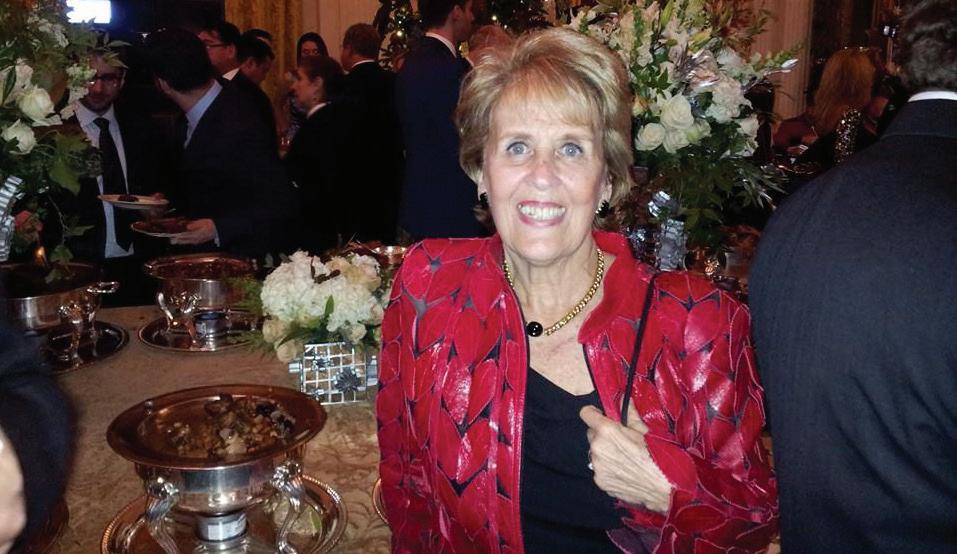 MALA BLOMQUIST | MANAGING EDITOR
MALA BLOMQUIST | MANAGING EDITOR
In a June 8 interview with Jewish News for an article, “Remembering our days at Jewish News,” for the paper’s 75th anniversary Best of issue, Leni Reiss spoke candidly about her then nine-month battle with pancreatic cancer.
“I’m getting wonderful treatment and have wonderful doctors and I’m not letting myself be sad,” said Reiss. “I’m not bringing anybody down with me.”
She also expressed how “unbelievably wonderful” her family and friends had been during this time. She said there was a point where she had so many people bringing her food that it all couldn’t fit in the refrigerator.
Reiss passed away on Sept. 6, 2023, after turning 84 on Aug. 25.
She arrived in Arizona in August 1961 with her six-month-old son, Mitchell. Her husband, Barry, whom she met while getting a degree in education at The Ohio State University, had moved to Arizona ahead of them.
Settling into her new home, she joined the Jewish Community Center and met other young moms there. Reiss then joined Hadassah and became involved with the Jewish Federation of Greater Phoenix’s young leadership group.
“My Jewish life really took off and never stopped,” she said during a 2008 interview for the Arizona Jewish Historical Society’s Arizona Memory Project. “I credit the Jewish community here with a very full and wonderful family life.”
Even though she majored in education, her dream job was to be a journalist. Reiss started at Jewish News in 1976, working as a columnist and staff writer under thenowners Pearl and Cecil Newmark. She was promoted to managing editor when the Newmarks’ daughter, Flo Eckstein, and her husband, Paul, bought the paper in 1981. Reiss worked as managing editor until May 1994.
“I valued her friendship, energy, creativity, commitment to the Jewish community and devotion to getting the facts right in every story,” said Eckstein in an email to Jewish News. “Under her leadership, Jewish News won many reporting and editing Rockower awards from the National Jewish Press Association and she and I nearly always participated in our association’s annual meetings to accept them in person.”
When she left the paper, she continued writing for various local and national publications as a freelancer. Locally, she also volunteered her time to Book Pals, a public school literacy program.
Nationally, Reiss directed Do The Right Thing, a mentoring program for college journalists sponsored by the Jewish federation network; was a member of the board of the Jewish Investigative Journalism Fund,
sponsored by the Andrea and Charles Bronfman Foundation Philanthropies in the 1980s and ‘90s; and from 2005 to 2019, she was associate program director of The Conversation, a North American annual retreat for leaders and emerging leaders in Jewish life, sponsored by The Jewish Week of New York.
Over the years, Reiss was invited on more than a dozen press trips to Israel and traveled to Lebanon right after the 1982 war there. She told of how she and fellow journalists were on a road outside of Beirut where they had to watch where they walked because of landmines and investigated a cave used by the Palestine Liberation Organization (PLO) where there was still ammunition lying on the ground. During that trip, she met professional colleagues whom she kept in touch with for decades.
She interviewed prime ministers, politicians and was invited to the White House twice. The second time, President Barack Obama and First Lady Michelle Obama invited her to the White House Chanukah party.
“The food was breathtaking and served on silver platters on the biggest table that you’ve ever seen,” said Reiss. “And we had free rein of the first floor of the White House.”
But her first White House visit was much more memorable.
Then-Vice President George H.W. Bush was getting ready to run for president and had just returned from a trip to the Middle East and wanted press coverage, so he invited a handful of journalists from Jewish newspapers across the country to the White House. Reiss was on that press list.
She packed her camera, tape recorder and a new linen suit because she “wanted to be a lady.”
Her flight leaving Phoenix was six hours late and through a “series of misadventures,” she arrived in Philadelphia in the middle of the night to a closed terminal.
At 6 a.m., when the ticket window opened, she got on a flight to Washington, D.C., without her luggage and her linen suit. She had White House Press Secretary Marlin Fitzwater’s business card with her, so she called him and explained the situation. “I’m wearing jeans, sneakers and a Western shirt. I don’t want to in any way seem disrespectful, but I want to come to the White House,” she said.
Fitzwater told her to come, so she took a cab to the White House
When she entered the West Wing, she saw the other journalists dressed beautifully and giving her side glances. When Vice President Bush entered the room, he asked, “Which one of you is the young woman from Phoenix?” Reiss said, “Oh, that would be me,” and stood up. He came over to her, and taking her hands in his, told her, “I’m so sorry for what you had to go through.” She went on to interview him but at that point, the story was not what he was saying but how she got there.
At the end of the Arizona Memory Project interview, where she shared several stories, she said, “These are experiences that only would have happened because of my affiliation with the Jewish News as a journalist. I am forever grateful for those experiences.” JN
Reiss is survived by her husband, Barry; children Mitchell (Elissa) Reiss and Andrea Maron (Scott Weiss); grandchildren Jasmine, Ethan, Brooke, Isaac and Jory Weiss and Matana, Eden and Shai Maron. Messages of comfort and support may be sent to andimaronweiss@weissbrown.com. Donations in her name may be made to Hospice of the Valley (hov.org).
Frankenstein
Frankenstein
OCT 13, 14, & 15, 2023
Frankenstein
The Barber of Seville
Frankenstein
OCT 13, 14, & 15, 2023
JAN 27 & 28, 2024
OCT 13, 14, & 15, 2023
Roméo & Juliette
The Barber of Seville
MAR 2 & 3, 2024
The Barber of Seville
JAN 27 & 28, 2024
JAN 27 & 28, 2024
Don Giovanni
azopera.org
Roméo & Juliette
OCT 13, 14, & 15, 2023
Frankenstein
OCT 13, 14, & 15, 2023
The Barber of Seville
The Barber of Seville
JAN 27 & 28, 2024
JAN 27 & 28, 2024
Roméo & Juliette
Roméo & Juliette
MAR 2 & 3, 2024
MAR 2 & 3, 2024
20 & 21, 2024 azopera.org | 602.266.7464
Don Giovanni
Roméo & Juliette
MAR 2 & 3, 2024
MAR 2 & 3, 2024
Don Giovanni
APR 20 & 21, 2024
Don Giovanni
APR 20 & 21, 2024
APR 20 & 21, 2024 azopera.org | 602.266.7464
HEADLINES
LOCAL JEWISHAZ.COM JEWISH NEWS SEPTEMBER 15, 2023 9
Leni Reiss at the White House Chanukah party in 2014.
Frankenstein OCT 13, 14, & 15, 2023 The Barber of Seville JAN 27 & 28, 2024 Roméo & Juliette MAR 2 & 3, 2024 Don Giovanni APR
COURTESY OF LENI REISS/FACEBOOK
‘Fighting hate starts at home,’ says Mesa detective, who went undercover to expose white supremacists
SHANNON LEVITT | STAFF WRITER
atson Browning began infiltrating and exposing white supremacists in the mid-1990s, first with the Mesa Police Department, where he worked for two decades — much of it undercover, as well as the multiple years he spent with the FBI’s Joint Terrorist Task Force.
“I’ve been fighting hate since ‘94,” he told Jewish News. He infiltrated groups in Arizona, such as the state’s branch of the National Alliance, a neo-Nazi organization, and outfits further afield, like California’s Ku Klux Klan. That fight has not been his alone, however. His wife, Tawni Browning, has been supporting him “behind the scenes” even while she raised five children and taught music.
“It was just so frustrating to see what was going on and that no one was paying attention,” she said.
Despite a number of homegrown violent incidents in the 1990s, there never seemed to be enough resources for fighting hate groups. Tawni “became a resource” for the
dangerous but important work her husband did, even when that meant she was putting herself at risk just as he was, she said.
She got to know some of the same white supremacists, studied their history and learned on the job.
“It was like the craziest of soap operas just watching who was dating who and who was backbiting who. Then I could kind of see and predict what might happen,” she told Jewish News.
Browning saw that detectives investigating gangs had systems to share information but there was nothing equivalent for white supremacist groups.
In 2005, he and Tawni created the Supremacist Intelligence Network (SIN), to share information with law enforcement agencies. Since then it has grown to become a global law enforcement organization that tracks hate groups across the globe.
“I was in Mesa and with SIN I could talk to Phoenix and with Surprise, Gilbert and Chandler. Then we could talk to guys in
California and Utah and all over the place. This network grew so big that it went worldwide and we would bring in experts to help track, monitor and fight hate,” Browning said.
Tawni also kept her husband grounded. Staying sane doing this kind of undercover work and being exposed to unrelenting hate day after day took a toll on his emotional health, Browning explained.
“I would come home from a planning or an alliance meeting and I’d have to sit in the driveway for a minute just to get this crap out of my mind. You don’t keep your sanity,” he said.
On those days, Tawni would bring his children to him and remind him that the world doesn’t have to be the way white supremacists describe it.
“I was trying to keep this a home, a place where he knew that love was real and not just the hateful stuff that he saw all the time,” she said.
Still, “it messes with your head,” he said. “How can it not mess with your brain?”
Another way for both of them to cope with the stress was to write it all down. “The Hate Next Door: Undercover within the New Face of White Supremacy,” Browning’s new book, written with the assistance of his wife, was published by Sourcebooks on July 11. It details the history of hate movements, his personal and frightening encounters with criminal white supremacists, a glossary of terms and ways to identify people who might be at risk of joining hate groups and how to intercede.
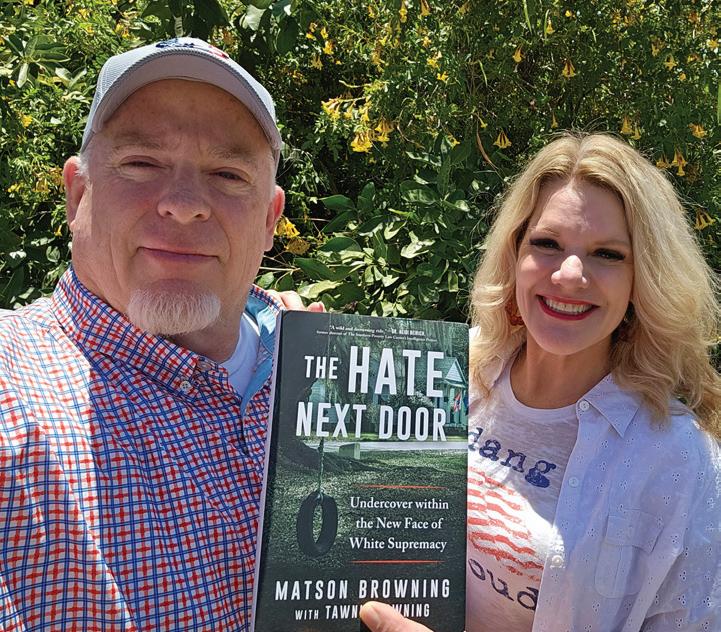
Kirkus Reviews, considered the gold standard of book reviews, called the book “knowledgeable, propulsive and a bit terrifying.”
While Browning is not Jewish and doesn’t discuss antisemitism at length, he does call it “the basis of hate” and puts it at the heart of many white supremacist groups’ beginnings and continuing ideologies, especially so-called “Christian Identity” groups, who advocate that only Celtic and Germanic people are the descendants of Abraham, Isaac and Jacob.
“Christian identity is what’s fueling hatred towards the Jewish people and Jewish communities and causing the biggest problems,” Browning said.
Browning arrested members of hate groups, but his career has also been about exposing these ideologies and the people behind them.
“If you expose the lie, I hope that it changes the future,” he said.
The antisemitic comments people made in front of the Brownings when they were undercover were “absolutely shocking,” Tawni said. “I had no idea that people hated like that.”
Browning also writes about politicians who held such groups at arms-length while brandishing some of their talking points, albeit usually in less bombastic language. He wrote specifically about going toe to toe publicly with the late Arizona State Senator Russell Pearce, a far-right politician who was the primary sponsor of Arizona SB1070, a controversial anti-illegal immigrant measure signed into law in 2010. Pearce served in the Arizona Senate from 2008 until 2011, until he was recalled in a special election.
Decrying illegal immigration was what Pearce was best known for but he also used racist and antisemitic dog whistles, something both Browning and the AntiDefamation League (ADL) tried to call attention to. For example, when Pearce forwarded an email to his supporters with the phrase “Jews ruling the world,” he claimed to be ignorant of those statements.
Browning pointed out that those are the same bad-faith tactics that other politicians and the media continue to use. He also wrote about the need for more organizations like the ADL “that are willing to put themselves out there and say, ‘We’re not going to let this happen.’”
In Browning’s experience, anti-immigrant sentiment is what has long animated the majority of hate groups in Arizona but within those groups there are a significant number of antisemites.
“We had old-school Holocaust deniers hooking up with street-level skinheads, who would then go down to the border and fight with militias,” he said.
Both Brownings want their book to be in homes, schools and libraries so that people know what these groups are about and how to be on guard against them.
“I don’t think most of us want to be haters or racist and I’m worried about people being pulled in and drowned before they even know they’re in the water,” Tawni said.
Browning, on the other hand, calls himself a realist. He knows that hatred is unlikely to disappear. “But can we fight it? Yes, we can,” he said. JN
HEADLINES
“The Hate Next Door: Undercover within the New Face of White Supremacy” is available at Amazon. LOCAL 10 SEPTEMBER 15, 2023 JEWISH NEWS JEWISHAZ.COM
new
MCOURTESY OF MATSON AND TAWNI BROWNING Jewish News rates will increase October 16, 2023. We are giving all current and past subscribers the opportunity to lock in our current rates before they increase. Calling all current, past and future Jewish News subscribers: One year print & e-edition • 26 papers & e-edition access • Community Directory • Best Of Jewish News Two year print & e-edition • 52 papers & e-edition access • Community Directory • Best Of Jewish News Three year print & e-edition • 78 papers & e-edition access • Community Directory • Best Of Jewish News *Offer expires 10/16/23 Visit JewishAZ.com or call 602-870-9470 option 1 1948 2023 YEARS to lock in the current rate for a one-, two-, or three-year print and e-edition subscription, or to purchase a gift subscription for a friend or family member at today’s low price. New Rate $54 Current Rate $48* New Rate $90 Current Rate $79* New Rate $115 Current Rate $99*
Matson, left, and Tawni Browning hold their
book.
Everything my college student needs to know he learned at synagogue
 RABBI DAVE LEVY | JTA
RABBI DAVE LEVY | JTA
Two weeks ago we did it: My wife and I dropped our eldest son off for his first year of college. As you can imagine, it is a heady, emotional moment. There is pride and joy mixed with anxiety and the bittersweet sense that this primary chapter of parenting is coming to a close. As parents, we’ve asked each other so many questions in the weeks leading up to the big day. Will he eat? Will he meet new people? Will he take advantage of all the school has to offer? What will his Jewish experience be like? What about all the reports we hear of the challenging climates on many U.S. campuses for kids who support Israel? Will he be forced to defend Israel’s right to exist in the face of those who would delegitimize Israel?
We tried to breathe and remind ourselves of two important points. First, this was our son’s challenge, not ours. Ultimately, he will need to navigate these challenges — and so many we haven’t even imagined. Had we prepared him to do that? This question
led to the second point: Everything he needs to face these challenges he learned at synagogue.
Obviously, there is some hyperbole in this kind of sweeping statement. We are grateful for many valuable experiences, including a wonderful Jewish day school, excellent summer camp experiences and Israel travel. We are also in awe of the dedicated Hillel professionals on many campuses who support our students. Still, I would argue that our family’s commitment to attending synagogue regularly taught our sons a world of lessons. I don’t just say this because both of their parents are rabbis (I imagine that created a host of challenges that they will one day write about). I believe this is true of all the active “shul kids” in our community.
So, what were those lessons?
HOW TO SPEAK TO PEOPLE OF ALL AGES. Synagogues are unique places for intergenerational interactions. Our kids would seek out their friends each week, but after services, we always found them at
tables interacting with adults and seniors in the community. This kind of interaction is a real-world skill that we know will serve our students well in college. Countless faculty, advisors, staff and friendly adults are available to support our students wherever they go. Their ability to comfortably navigate and make the most of those interactions will take them a long way.
HOW TO SIT WITH PEOPLE YOU DISAGREE WITH. This is an essential lesson for all of us. Synagogues comprise people who share their Jewish beliefs but not necessarily their politics. Over these last few contentious years, we have seen that people have a lot of difficulty sharing space with those with whom they disagree. We are proud that our children learned that, despite our differences, people in our community shared a common faith, which was a place to start. We could wish those across the aisle (pun intended) a “Shabbat shalom,” and save the arguing for the way home. These lessons are crucial; our
How a religious revival fed the demise of the Midtown kosher deli

It happened toward the end of the last theater season, and it didn’t occasion much comment in the media. But the merging of Ben’s Kosher Delicatessen on West 38th Street with the glatt kosher Mr. Broadway around the corner marked the end of an era.
Ben’s, the last kosher deli in the Theater District that was open on Shabbat, made it possible for generations of Jewish New Yorkers — and a good many Jewish tourists as well — to enjoy a bowl of matzah ball soup and a kosher pastrami or corned beef sandwich before heading to a Saturday matinee.
In recent years, as the Orthodox world has become increasingly stringent, fewer and fewer agencies have offered kosher supervision to an eatery that remains open on the Jewish Sabbath.
The merger of Ben’s and Mr. Broadway may represent a triumph of religiosity, but it also marks the demise of a Midtown kosher culture that was more flexible and more inclusive of the diverse ways people experience their Jewishness.
Kosher delis were, for decades, fixtures of the Garment Center and the Theater District — the twin neighborhoods, both heavily trafficked by Jews. Hirsch’s Kosher Deli on West 35th Street was immortalized in the early 1940s in a photo by Roman Vishniac of a group of clothing company executives in three-piece suits and fedoras reading Yiddish newspapers and chatting.
In the 1960s, kosher delis in the area included the Melody on Seventh Avenue at 37th Street and Golding’s on Broadway and 48th Street (before it decamped to the Upper West Side, reopening at Broadway and 86th Street). In the 1970s, the Smokehouse on 47th Street between Fifth and Sixth Avenues featured smoked and spiced beef by Zion Kosher, the main rival in New York to Hebrew National.
Celebrated Theater District delis like Lindy’s and Reuben’s, and later The Stage and The Carnegie, weren’t kosher, and they sold the lion’s share of corned beef and pastrami sandwiches.
But there was no dearth of kosher food in
the neighborhood. In addition to the kosher delis, there were popular upscale kosher eateries like Gluckstern’s — which claimed, in the late 1940s, to serve a staggering 15,000 customers a week — Poliacoff’s, Trotsky’s, the Paramount and Lou G. Siegel’s, which billed itself as “America’s Foremost Kosher Restaurant.” Lou G. Siegel’s occupied the same space that Ben’s took over and that Mr. Broadway is in now at 209 W. 38th St.
In addition to serving steaks and chops, these establishments sold large quantities of deli sandwiches. While these restaurants advertised themselves as “strictly kosher,” they were open on Shabbat, although notices in their menus, printed daily, beseeched patrons not to smoke on the premises on Friday nights and on Saturdays until sundown, since that, of course, would be a flagrant violation of Jewish law.
When a 2018 review in the New York Times referred to the 2nd Avenue Deli as kosher, even though it was open on Shabbat, it prompted a complaint from a reader named Fred Bernstein. Bernstein
A NOTE ON OPINION
students won’t share the same beliefs as all their teachers or classmates, but they know that we need to find the common humanity in those we disagree with so we can encounter each other with patience, care and understanding.
THE IMPORTANCE OF STANDING UP FOR JUDAISM AND ISRAEL. With the rise of antisemitism and anti-Israel sentiments, it is as important as ever for our students to know how to advocate for the Jewish community and to have a sense of pride in who they are. Our synagogue had swastikas spray painted on our doors a few years back. Our congregation’s children were encouraged to attend the solidarity service that night. Every seat was filled with our members and our caring neighbors. Our children learned a few valuable lessons that night. First, antisemitism is unacceptable
SEE COLLEGE, PAGE 12
explained to restaurant critic Frank Bruni that “almost no observant Jew would consider it kosher” and cited two authorities on the subject: actor Sacha Baron Cohen and Leah Adler, Steven Spielberg’s mother and then owner of a kosher dairy restaurant. Bruni responded, quite reasonably, that he has “several friends who adapt and interpret kosher dietary rules in unusual and permissive ways.” He added: “For them ‘kosher’ — and they do use the word itself when explaining their menu choices — isn’t an exact and exacting prescription so much as it is an ideal toward which they take small steps.”
Indeed Ronnie Dragoon, who owns the restaurants in the Ben’s Kosher Deli chain — all of which are open on Shabbat — and is now a part-owner in Mr. Broadway, estimated that only about 20% of his clientele, across all his restaurants, keep the Jewish dietary laws.
SEE DELI, PAGE 12
OPINION JEWISHAZ.COM JEWISH NEWS SEPTEMBER 15, 2023 11
TED MERWIN | JTA
Commentary
We are a diverse community. The views expressed in these opinion pieces do not necessarily reflect the views of the officers and boards of the Jewish Community Foundation, Center for Jewish Philanthropy, Jewish Federation of Greater Phoenix, Cleveland Jewish Publication Company or the staff of the Jewish News. Letters must respond to content published by the Jewish News and should be a maximum of 200 words. They may be edited for space and clarity. Unsigned letters will not be published. Letters and op-ed submissions should be sent to editor@jewishaz.com
COURTESY OF RABBI LEVY
Rabbis Dave Levy and Rachel Ain and their two sons, Jared and Zachary, at the University of Texas, where Jared is a member of the class of 2027.
The faux Art Deco interior of the former Ben’s Kosher Deli in Manhattan. COURTESY BEN’S; JTA ILLUSTRATION BY GRACE YAGEL
The season of spiritual emergency and elation
the Days of Awe.
state of emergency is a situation in which a government is empowered to establish policies that would normally not be lawful, for the safety and protection of its citizens. Here in Arizona, the governor declared a state of emergency a few weeks ago following an extended heatwave. New York State is in an ongoing state of emergency due to its immigrant crisis and Hawaii declared a state of emergency last month due to its tragic outbreak of wildfires. While a government can declare such a state during a natural disaster, civil unrest, armed conflict or pandemic — in response to a physical crisis, as Jews, we declare a state of emergency every summer in response to a spiritual crisis and it’s called
DELI
CONTINUED FROM PAGE 11
Most of the kosher delis in New York were historically open on Shabbat, from the heyday of the kosher deli in the 1930s, when there were a staggering 1,550 such delis in the five boroughs, to today, when less than 1% of that number remains. Deli owners needed their establishments to be open on the weekends to make a profit — in Manhattan, they did the bulk of their business on Friday and Saturday nights, as opposed to kosher delis in the outer boroughs, which were typically busiest on Sunday nights for both eat-in and takeout.
In Manhattan, many owners of kosher delis got around the strict rules of kashrut by “selling” their restaurants to non-Jews, usually employees, before sundown on Friday and buying them back on Saturday night, so they technically didn’t own them and so weren’t doing business during the Sabbath. Many justified staying open on Shabbat because it enabled Jews to remain faithful to Jewish tradition in their food consumption, without regard to other ways in which they were transgressing Jewish law.
Kosher delis nowadays adopt different strategies to deal with this issue. Some, like the 2nd Avenue Deli, do still sell their businesses to a non-Jew. Yuval Dekel, the owner of Liebman’s, the last kosher deli in the Bronx told me that he just ensures that all his ingredients are kosher.
Some kosher delis, especially outside the New York area, like Abe’s Kosher Deli in Scranton, Pennsylvania, are owned by nonJews. While relatively unusual, there is noth-
AIn what might first seem like a bleak view of the human experience, Rabbi Joseph B. Soloveitchik (1903–1993) suggests that Maimonides defines the essence of Tefilah, daily prayer, as a reaction to distress, even at times in which we do not face an out-ofthe-ordinary challenge, crisis or difficulty. Rather, every normal, humdrum, prosaic day of human life is an inherent time of crisis but of a spiritual nature. Every day, we encounter, perhaps subconsciously, an internal struggle to face and accept our underutilized, unfulfilled and often wasted potential. Every day, we encounter a crisis of the realization of the frailty of human life and every day, we encounter the predicament of our inherent limitations as finite beings. Every day, according to Maimonides, we must respond to that crisis by picking up a Siddur.
Although we may not be tuned into this spiritual crisis throughout the year, it is there. We may have a nagging feeling of dissatisfaction with life, a less-than-
enthusiastic approach to our day-to-day tasks or a feeling of detachment from the Creator, but rather than address it, we suppress it. We distract ourselves with entertainment, excessive sleep or various dependencies — alcoholic, workaholic, chocoholic, shopaholic. The Days of Awe should be different. As we approach Rosh Hashanah and Yom Kippur, our annual wake-up call that we should aspire to be bigger people and better yidden, we must face or at least tune into these challenges. Unlike during the rest of the year, during the Days of Awe, we recognize and even embrace our state of crisis and respond with prayer. We acknowledge, for at least this short period, our ongoing state of emergency. The ancient, hallowed prayers of the Machzor and the sound of the shofar set the tone that through our prayers, we will begin to address that crisis, with G-d’s help. But this is only half of the Days of Awe encounter. Complementing that sense of fear and panic is an experience of grateful elation. It has been 356 days since Rosh
SHABBAT/HOLIDAY CANDLE LIGHTING
SEPTEMBER 15 - 6:16 P.M.
SEPTEMBER 16 - 7:10 P.M.
HOLIDAY ENDS
SEPTEMBER 17 - 7:09 P.M.
Find area congregations at jewishaz.com, where you can also find our 2023 Community Directory.
Hashanah (the primarily lunar Hebrew year is shorter than the solar year). If we are here today, it is because G-d answered our prayers last year, when last Rosh Hashanah and Yom Kippur we pleaded again and again, “Remember us for life, King Who desires life, and inscribe us in the Book of Life!” Is it appropriate to open the Machzor again to beg for life without first taking the time to thank G-d for the beautiful gift of a year of life that we just completed? As we show up in shul to ask yet again, what better way is there to prepare for our encounter with the King of the Universe than by being infused during this holiday season with a joyful appreciation of His gift of health and life itself with all its simple but profound pleasures and wonders?
Wishing everyone a sweet Rosh Hashanah and a productive, prayerful and grateful new year. JN
ing new about this: The Kosher Irishman, a deli in East Orange, New Jersey, was open for more than a half a century.
Staying open on Shabbat in the city, however one did it, could be a problem if a neighborhood became heavily populated by Hasidic Jews. My mother worked in the 1950s in her uncle’s kosher deli in Williamsburg, Brooklyn until the restaurant was forced to close because of opposition from the growing haredi population in the neighborhood, who insisted that keeping an otherwise kosher restaurant open on Shabbat was a chillul haShem (desecration of God’s name).
In today’s world, in which most Orthodox Jews will eat only in glatt kosher delis like Mr. Broadway, Jewish food doesn’t play the kind of unifying role it once did, according to Jeffrey Gurock, a professor at Yeshiva University and a historian of Modern Orthodoxy. In the past, Gurock has explained, seeing a neon Hebrew National sign in the window made even Modern Orthodox Jews comfortable eating in a deli, whether it was open on Shabbat or not.

Early one Wednesday afternoon in July, I stopped at Mr. Broadway for a bite. I sat and chatted with Dragoon while I chowed down on a brisket sandwich and a potato knish.
I glanced at a huge, framed oil painting that was sitting on the floor, decorated with the famous deli joke about an immigrant Chinese waiter who speaks Yiddish (and thinks he’s speaking English). In its place, the oil painting showed a tall Orthodox
rabbi standing on a plush red carpet before the ark in a synagogue; he was clad in sumptuous blue and white robes and sported a long, flowing white beard. The painting seemed like the perfect symbol of what had happened to the deli as it had acquired a depth of religiosity that neither Lou G. Siegel’s nor Ben’s had ever aspired to.
COLLEGE
CONTINUED FROM PAGE 11 and should never be tolerated or brushed off. Second, we have allies who care about us and will stand with us. Third, and perhaps most important to our students, is showing up when your community needs you. It was not lost on anyone at that service that everyone — synagogue members, Jewish community members, leaders from the greater community — was at that service. Our students must show up for each other on campus when hatred rears its ugly head. This imperative to show up is true for Israel, the Jewish community and anyone else who is targeted.
HOW TO WORK A BUFFET. Kiddush is an amazing educator. First, the experience of eating together with so many people leads me to believe that our students will be ready for the dining halls, receptions and parties they will attend. They have also learned the art of small talk. The ability to chit-chat with people you don’t know opens doors to friendships, making seemingly big places a little smaller.
Ronnie saw me looking at it. “Do you want it?” he asked.
“No,” I said. “No, I really don’t.”
The views and opinions expressed in this article are those of the author and do not necessarily reflect the views of JTA or its parent company, 70 Faces Media.
CARING FOR OTHERS. Children who grow up in synagogue learn how a community cares for its people. Each week, they hear a “Mi Sheberach” list, where the names of those who are ill are shared, and remember that there are people who need visiting or friendly calls. They know from shiva that we take time and sit with those suffering from loss. Our students going off to live in a community of their peers will be ready by knowing both that we need to and how to care for others.
There are countless other lessons: “attend the guest lecture,” “welcome strangers,” “dress neatly on special occasions,” “don’t sit in so and so’s seat.” There are certainly others that we haven’t realized yet. What we recognize, though, is that despite reports to the contrary, the synagogue remains an essential building block of the Jewish community and the formation of thoughtful, caring young adults. JN
The views and opinions expressed in this article are those of the author and do not necessarily reflect the views of JTA or its parent company, 70 Faces Media.
RELIGIOUS LIFE 12 SEPTEMBER 15, 2023 JEWISH NEWS JEWISHAZ.COM TORAH STUDY
Rabbi Yisroel Isaacs is director of the Greater Phoenix Vaad Hakashruth, rabbi at Beth Joseph Congregation and director of the Jewish Enrichment Center.
RABBI YISROEL ISAACS PARSHAH ROSH HASHANAH 1: GENESIS 21:1-34
Rabbi Yisroel Isaacs PHOTO COURTESY OF RABBI YISROEL ISAACS
JN
Homemade gravlax
In “Full Moon Feast,” Jessica Prentice guides us through 13 lunar months and the foods grown and prepared within them in traditional cultures. At its core is the idea that food connects people to one another, to themselves and to the natural world. Prentice describes the lifecycle of Pacific salmon, who in early autumn are born in freshwater streams, spend their lives in the ocean and then journey back upstream to their birthplace to spawn the next generation.
The salmon’s natural life cycle provides a metaphor for this time of year, when we are engrossed in our own “return.” On the High Holidays, we do teshuvah, which is often translated as “repentance,” but literally means “return.” We return to ourselves in order to examine who we are and who we want to be.

Eating lox this time of year connects our own process of “teshuvah” with salmon’s seasonal “return.” If you have never cured your own lox before, give this recipe a try for Yom Kippur break-fast. It doesn’t require any special equipment, and is sure to delight. Thin slices of this buttery, moist gravlax will be delicious on your post-fast bagel or on a slice of homemade gluten-free challah.
Ingredients:






2 pounds fresh center-cut wild salmon fillet, skin on







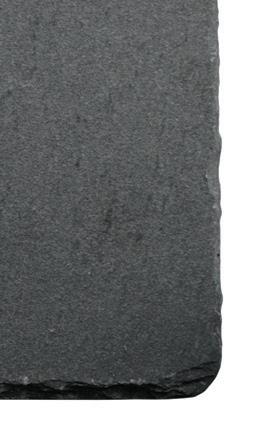



½ cup kosher salt









½ cup sugar











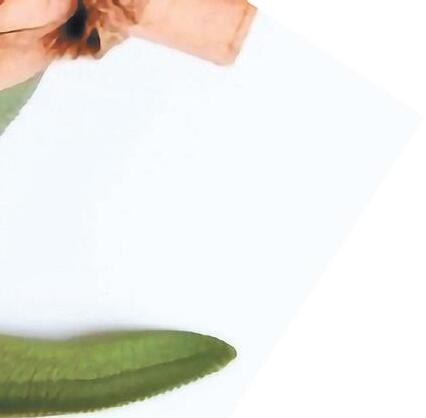
2 tablespoons peppercorns
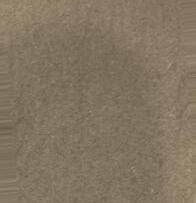



2 teaspoons crushed juniper berries (can be purchased at Whole Foods, Fairway, or specialty food stores)

7-8 large sprigs fresh dill


1-2 shots of gin or vodka
Directions:




1. In a bowl, combine the salt, sugar, peppercorns and juniper berries. Line a glass dish that will fit your salmon fillet with two large pieces of plastic wrap and sprinkle half of your salt and sugar mixture onto the bottom. Lay half of your dill sprigs down, then cover with your salmon fillet. Sprinkle the remaining mixture on top of the fillet, then cover with the remaining sprigs of dill and your shots of alcohol, and then wrap everything as tightly as you can in the plastic. Leave it in the dish as the salt will create a brine for the fish.
2. Refrigerate for 3-4 days, depending on the thickness of your filet. The lox is finished when the salmon’s hue has transitioned from pink to deep orange. Before serving, discard the dill and rinse the fillet of the brine, peppercorns and juniper berries. Slice thinly against the grain with a sharp knife. Serve with sliced lemon and capers. Variation: try a layer of shredded raw beets on the non-skin side of your fillet before wrapping. After the lox is finished curing, each of your slices will have a purple or dark pink edge to it. JN
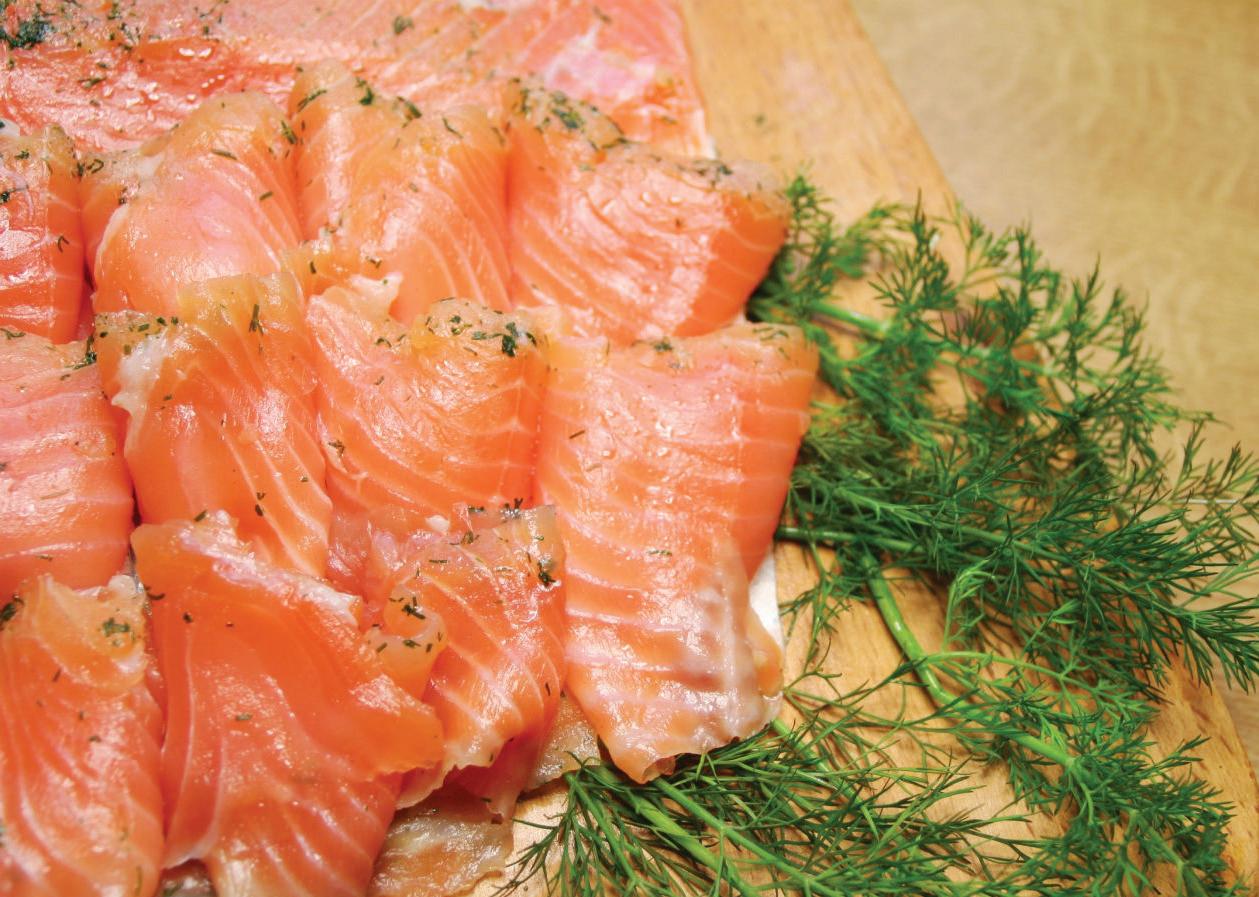
SPECIAL SECTION JEWISHAZ.COM JEWISH NEWS SEPTEMBER 15, 2023 13 HIGH HOLIDAYS
the new year bring you health, happiness, and peace.
tovah jewishstudies.asu.edu
May
l’shanah
VERED MEI | THE NOSHER VIA JTA
COURTESY
OF VERED MEI
Homemade gravlax
Temple Chai kids (and parents) prepare shofars and learn a little to boot
When it comes to understanding Judaism in all its complexity, Phoenix’s Temple Chai Cantor Ross Wolman wants to empower his congregation, including its youngest members, to delve into the details of its history and traditions rather than relying solely on Jewish educators and clergy.
To that end, following a lunch of salad, cheese pizza and fruit on Sunday, Sept. 10, about 45 kids and their parents learned a bit about shofars (the ram’s horn that is trumpeted during the High Holidays), the origin, religious significance and what makes it kosher — or not.
Wolman pulled out a few of his own shofars, horns from a ram, a kudu and oryx (all kosher) and explained why some Jews would be more likely to use one or another. He peppered his listeners with questions about why certain animal horns might not be acceptable and why it is sounded during the upcoming High Holidays.
Once prompted, many kids remembered the Exodus story of the impatient Israelites and the creation of the golden calf, which is why the horns of a bull cannot be used for a shofar. They were also adept at explaining what the sound of the shofar signifies.
“It gives us joy and happiness and lets us know we can rest because we work hard,” offered one little girl. “It tells us to wake up,” said another.
Wolman seconded their responses, expanded on them and listed more. The lesson was interactive and interspersed with song, story, video and, of course, some shofar blasts to get the kids excited about the project in front of them — polishing up their own shofars, made of horns from kudu, a large woodland antelope found throughout eastern and southern Africa.
“Maybe they learned something today that they can delve deeper into and learn a little bit more, then they can
teach someone else. Howard Silverman (a Temple Chai congregant) teaches medical students, and he said the process of teaching doctors is, ‘You observe, you do, you teach,’ and that’s what we’re doing,” Wolman said.
Sada Gilbert, a congregant who came with her husband and three children, appreciated Wolman’s efforts. She even learned a few things herself.




“I was curious about the process, too,” she said. “Anything we can do to give kids a doorway into understanding Judaism is an opportunity, even when it’s messy!”
With the “observe” part finished, the students were ready “to do,” and took their horns and sandpaper to tables, where they sanded down their rough surfaces before taking them to Silverman, who brought his bandsaw to remove the pointed end for a mouthpiece.
Silverman took up woodworking as a hobby when he and his wife, Sharona, first started their family. Since then, he’s brought his skills to help out Temple Chai — where he’s been a member for decades — many times, including to build the ark in the small sanctuary.

Helping out was merely one more example of Temple Chai’s “communal ‘build it with our own hands’ history and culture,” he said. In fact, he also helped out at the first shofar event in 2019. (A video clip showed Silverman wearing the same blue shirt four years ago that he wore on Sunday. His wife wasn’t surprised, however. “It’s blue or green every day,” she laughed.)
Wolman originally got the idea from a similar Chabad of Arizona shofar project in 2018. He intended to do it on an annual basis, but the COVID-19 pandemic put a wrench in those plans. Jeremiah Kaplan was involved in both events, demonstrating how to blast the shofar. He was happy that his youngest child, now six, was able to participate this year.

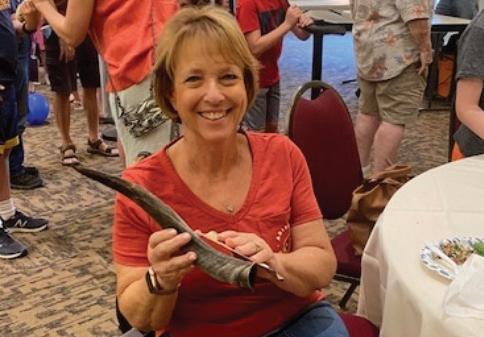
“We still have the shofar we made in 2019 and take it out every year,” he said.
Suzie Goldstein brought her sister and nephew who were visiting from California. She might have been more excited than her nephew about the event, she said.
“It was very enlightening. Even growing up in a synagogue and hearing the shofar, I learned so much from Cantor Wolman’s talk today,” she said.
Wolman also highlighted the intergenerational aspect of the day, which involved many kids, parents and grandparents. However, not every adult was accompanied by a child.
Michael Fox and Martin Rubin sanded their shofars and waited in line for Silverman’s bandsaw, too. Fox’s wife, Iris, had wanted to come but a hospital stay made it impossible. So Fox and Rubin, Iris’ brother, came in honor of her wishes.
As everyone practiced sounding their new shofars, Wolman reminded them to bring them along to services. With Rosh Hashanah just around the corner, he’ll find out soon enough whether the lesson stuck. JN
SPECIAL SECTION 14 SEPTEMBER 15, 2023 JEWISH NEWS JEWISHAZ.COM HIGH HOLIDAYS Corporations can also take the tax credit! Call 480.634.4926 for details The Jewish Tuition Organization (JTO) is a certified school tuition organization (STO). 480.634.4926 | JTOphoenix.org | info@JTOphoenix.org NOTICE: A school tuition organization cannot award, restrict or reserve scholarships solely on the basis of donor recommendation. A taxpayer may not claim a tax credit if the taxpayer agrees to swap donations with another taxpayer to benefit either taxpayer’s own dependent. Consult your tax advisor for specific tax advice. Provide scholarships by supporting the JTO through Arizona’s dollar-for-dollar private school tax credit Call TODAY or visit JTOphoenix.org TAKE THE CREDIT FOR JEWISH EDUCATION YEAR 2023 $1,307 / individuals $2,609 / married couples Wishing you a sweet New Year and an easy fast!
SHANNON LEVITT | STAFF WRITER
David Obergfell and Sada Gilbert join their three children in sanding shofars for the High Holidays.
Suzie Goldstein holds her shofar at Temple Chai on Sunday, Sept. 10.
Sharona Silverman and her grandson, Dylan, sand a shofar on Sunday, Sept. 10. PHOTOS COURTESY OF JEWISH NEWS
Howard Silverman uses his bandsaw.
Michael Fox and Martin Rubin came to Sunday’s event to honor Iris Fox, who wasn’t able to attend.
Jewish Federations launch Rosh Hashanah letter-writing campaign to Evan Gershkovich
Since he was arrested by Russian authorities in March, one of Evan Gershkovich’s few connections to the outside world has been a stream of letters from his friends and family.
But soon, his circle of correspondents is due to expand. In the days surrounding Rosh Hashanah, people from around the world will be sending Gershkovich letters, all wishing him a happy new year.
Gershkovich, 31, a Wall Street Journal reporter and son of Jewish refugees from the Soviet Union, has been detained since March on charges of espionage that he, the Journal and the United States government vehemently deny. He has yet to stand trial.
In the months since his arrest, Jews have repeatedly employed religious rituals
to call for his freedom. Now, ahead of Rosh Hashanah, the Jewish new year that begins on the evening of Friday, Sept. 15, the Jewish Federations of North America has launched a letter-writing campaign to send Gershkovich cards wishing him a “Shanah tovah,” or happy new year.




“We are deeply concerned for Evan’s well-being,” Eric Fingerhut, the group’s CEO, said in a statement. “As Jews around the world will be gathering with loved ones during Rosh Hashanah, one of the most important acts we can do as a collective community is to let him know that we are thinking of him and standing with him in solidarity.”




A Jewish Federations spokesperson said that the group expects a “substantial”
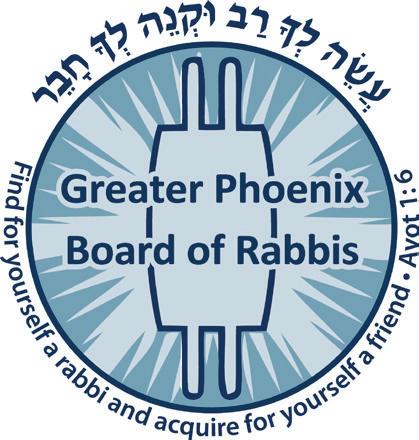










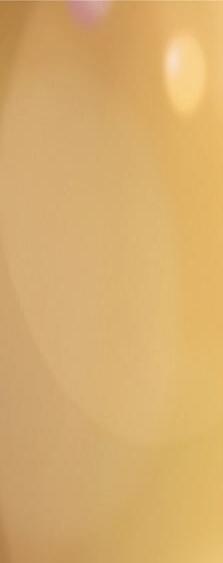

number of letters to come in. But to reach Gershkovich, the spokesperson said, Russian policy dictates that all letters must first be translated into Russian and vetted. To abbreviate that process, Federations staff will collate excerpts from the letters into one “collective” letter that reflects the themes of the greeting cards, and notes the number of people who sent them, while condensing their total length.
The “collective” letter will be sent to Gershkovich via his lawyers. The full texts of the letters themselves will be sent to Gershkovich’s parents, who live in New Jersey and are aware of the campaign. Letters can be submitted until Sept. 15 at form.jotform.com/232394319702052.
Jewish ritual has figured prominently in

previous calls for Gershkovich’s freedom. After his arrest in March, Shayndi Raice, a fellow reporter at the Journal who is based in Israel, called for Jews around the world to leave an empty space for Gershkovich at their seder tables. Her call, which was shared widely, echoed a 1960s campaign on behalf of Soviet Jewry.
“As you celebrate freedom, join us in demanding freedom for Evan,” Raice wrote on X, the social network formerly known as Twitter.
Gershkovich’s pretrial detainment has been extended multiple times since his arrest, and U.S. officials’ hopes for his release are focused on the possibility of a prisoner swap, which has encountered obstacles in recent weeks. JN

SPECIAL SECTION REAL ESTATE & HOME DESIGN JEWISHAZ.COM JEWISH NEWS SEPTEMBER 15, 2023 15 HOLIDAYS ALL RESTAURANTS OPEN ON MONDAY, SEPT. 25TH Call our Catering Experts 480-348-CATR (2287) Enjoy the Feast When the Fast is Over View our Take-Out Menu at chompies.com To-Go Phoenix 32nd St. & Cactus Rd. 3212 E. Cactus Rd. 602-710-2910 Scottsdale Mercado Del Rancho 9301 E. Shea Blvd. 480-860-0475 Chandler Chandler Village Center 3481 W. Frye Rd. 480-398-3008 Glendale Arrowhead Towne Center 7700 W. Arrowhead Towne Center Dr. 623-344-3104 Wishing everyone a sweet and healthy year If you are a Holocaust survivor or know of a survivor in AZ who would like to be a member of the Phoenix Holocaust Association contact us at: info@phxha.com or 480-792-6736 www.phxha.com Shanah Tovah u-metukah from the Board of Rabbis of Greater Phoenix, providing leadership to the community. הבוט הנש הקותמו Rabbi Jeremy Schneider President Rabbi Sara Mason Barkin Vice President Rabbi Nitzan Stein Kokin Secretary Rabbi Mark Bisman and Rabbi John Linder Co-Treasurers Rabbi Andy Green, at large
Rabbi Bonnie Sharfman Immediate Past President
JACKIE HAJDENBERG| JTA
U.S. journalist Evan Gershkovich stands inside a defendants’ cage at Moscow City Court on June 22, 2023. COURTESY OF NATALIA KOLESNIKOVA/AFP VIA GETTY IMAGES
Ingredients:
10 large sheets of phyllo dough (13-14”x18”), thawed

6 tablespoons butter, melted
2 large eggs
1½ cups whole milk (or creamy non-dairy milk)
¼ cup light or dark brown sugar
2 tablespoons sugar
2 teaspoons vanilla extract
½ teaspoon kosher salt
¼ teaspoon cinnamon
1 small apple or ½ medium apple, sliced very thin
¼ cup honey
¼ cup water
Apple and honey ruffle milk pie recipe
SONYA SANFORD | THE NOSHER VIA JTA
Ruffle milk pie is a Greek dessert made with a simple custard base and roselike coils of phyllo dough. It’s a type of galatopita (Greek for pie made with milk) that is very similar to the Middle Eastern dessert muakacha (Arabic for wrinkle), which is also known as a crinkle cake.
Crinkle cakes had a viral TikTok moment last year, and it’s obvious why ruffle pies have become so popular: they’re easy to make and result in a gorgeous, golden brown dessert with crispy pastry ruffles and a tender bottom layer of sweet, custardsoaked dough.
With the addition of tart apples and floral honey, ruffle milk pie becomes a celebration of the flavors of fall and the High Holiday season.
Directions
1. Preheat the oven to 350° F. Line and grease a 9-inch cake pan with parchment. Metal cake pans are best for this recipe, but you can also use a ceramic or glass deep dish pie pan, or a 9-inch springform pan.
2. Make sure that your phyllo dough is fully thawed according to the package instructions. Phyllo dough dries out very quickly and in order to prevent that, lightly dampen a clean kitchen towel.
3. Unroll the dough, and lie it flat on a clean surface. Cover it with the damp towel to keep it from drying out. Take out one sheet of phyllo dough at a time and keep the rest covered. Generously brush the sheet of phyllo with the melted butter. Scrunch the dough lengthwise on either side towards the center, so that the buttered phyllo sheet forms a long fan-like ruffle of dough.
4. Starting on one end, loosely spiral the dough into a coil; it will form a rose-like shape. Make sure not to coil the dough too tightly, you want ruffles and height in this pie. Place one spiral of dough into the center of the greased and lined 9-inch pan.
5. Continue the process and make a total of 9 more spirals of phyllo dough, or 10 in total. If you’re using smaller sheets of phyllo dough, you may need to add a few additional pieces of dough to fill the pan. Arrange the coiled sheets of phyllo into the pan, and make sure not to flatten any of the dough, adjust to fill out the pan as needed. If you have any leftover melted butter, brush it over the top of the phyllo spirals.
6. Cut the apple on either side of the core, then thinly slice the apple into half-moon shapes, about ” thick or less. Gently tuck in slices of apple between ruffles of phyllo dough. Make sure not to press down on the dough, and instead gently nestle in the apple.

Use as much apple as desired, about 1 small apple, or half of a medium apple.
7. Bake for 20 minutes, the phyllo dough will start to just slightly brown on top.
8. While it is in the oven prepare the custard. In a bowl, whisk together the eggs, milk, brown sugar, sugar, vanilla, salt and cinnamon.
9. Once the pie has baked for 20 minutes, pour the custard evenly over the phyllo spirals. Bake for another 25-30 minutes or until the top is golden brown and puffed up and the custard has fully set.
10. While the pie is baking with the custard, prepare a honey syrup by combining the honey and water in a small pot. Bring to a boil and simmer for 3-4 minutes or until a syrup has formed and the mixture has slightly thickened.

11. While the pie is still hot, drizzle the honey syrup over it. Be careful to leave some golden brown ruffles untouched by honey, so that they remain extra crispy. Allow the pie to cool for at least 30 minutes before serving. Pie is best served at room temperature and can be stored in the fridge for up to 3 days. If storing in the fridge, bring the pie up to room temperature before serving or reheat for 10-15 minutes, covered, at 350°F.
12. Garnish with powdered sugar or whipped cream if desired JN
SPECIAL
16 SEPTEMBER 15, 2023 JEWISH NEWS JEWISHAZ.COM HIGH HOLIDAYS
SECTION
Apple and honey ruffle milk pie
COURTESY OF SONYA SANFORD
Why Yom Kippur is my favorite Jewish holiday
SHELLY JAY SHORE | HEY ALMA VIA JTA





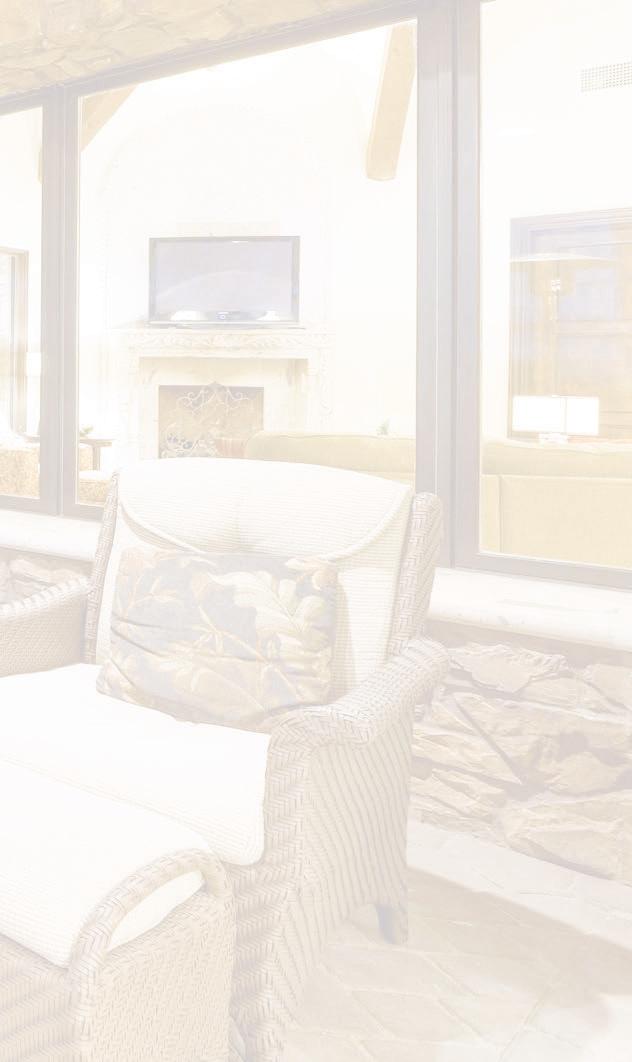
Iget a lot of odd looks when I tell people that my favorite day of the Jewish year is Yom Kippur.
As Jewish holy days go, Yom Kippur exists at the complicated intersection of community observance, intense liturgy and heavy-hitting ritual expectations that can be — and for many people, is — a perfect storm of anxiety, pressure and guilt.
From the traditional fast to the powerful language of the readings, Yom Kippur can bring up complicated feelings and unpleasant associations. There’s a reason that there is such a growing movement to expand and adapt the rituals of Yom Kippur to be more inclusive and oriented towards growth — from designing a meaningful Yom Kippur seder for people in recovery from eating disorders for whom fasting would not be healthy to the reframing of the confessional accountings of the liturgy to also include the acts of goodness performed by the individual and the community.
As someone who struggles with anxiety and depression, and who has a history of disordered eating and a chronic pain disorder, I spent years experiencing Yom Kippur as something miserable and exhausting. I couldn’t take in the melody of Kol Nidre or the radically intense language of the readings in Isaiah — all I could focus on was the intrusive thoughts reading me litanies of everything I’d done wrong, on the tempting reminders of my years of restricted eating, of how much my body hurt after hours of sitting in uncomfortable synagogue chairs.



For a long time, I wanted to just stop observing Yom Kippur altogether. But even when it was a terrible day, I felt like there was a potential for a meaningful experience that was just out of my reach.
The rituals and liturgy of Yom Kippur center heavily on the concept of teshuvah. In the context of mainstream teachings and conversations, teshuvah is most




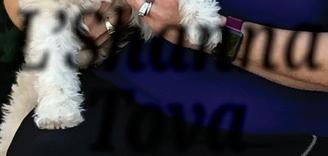
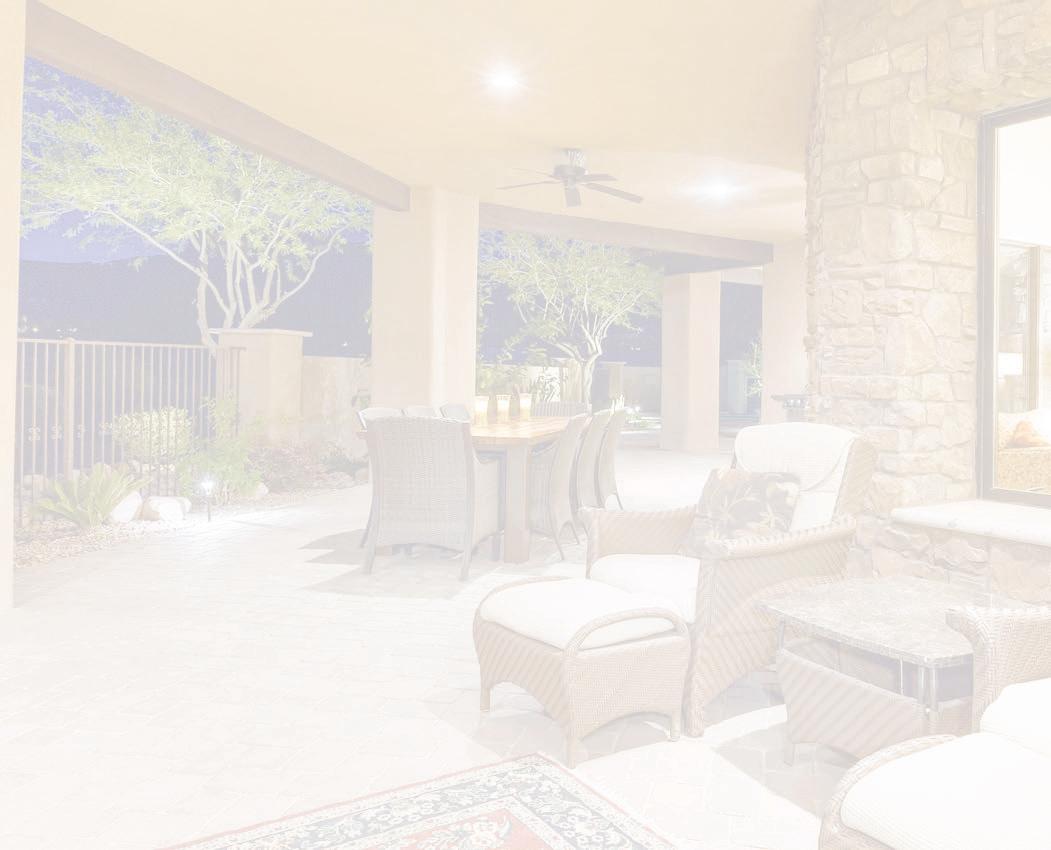
commonly translated as atonement or repentance. The idea of repentance is deeply embedded in Yom Kippur readings and traditions (and prayer books!), from the confessing of individual and communal sins to the framing of the Yom Kippur fast as a way of enacting punishment for the last year of harmful actions (which has, as far as I’m aware, literally no basis in traditional Jewish teachings at all).
But literally — and traditionally — translated, teshuvah means returning.
In “This Is Real and You Are Completely Unprepared,” one of the most widely accessible but deeply transformative books on the practices and teachings of
the weeks leading up to and through the High Holidays, Rabbi Alan Lew (z”l) frames teshuvah not as a yearly practice of spiritual reflection and repentance but rather as a journey of transformation and awakening. It’s not a journey that begins with Kol Nidre and concludes with Neilah, or even one that begins on Rosh Hashanah and concludes on Yom Kippur. Rather, it’s a constant, unending process that begins, and then begins again, with the intake of each new breath. For Lew, the spiritual work of Yom Kippur is not about a litany of one’s sins or making it 25 hours without your usual coffee intake (in fact, if I remember correctly, he doesn’t assign any particular virtue to
fasting on Yom Kippur at all; it’s simply another avenue for connecting to internal and transformative work).



For Lew and the teachers and Jews his work inspires, the work of teshuvah is about the difficult, radical and sometimes deeply terrifying journey of returning to the places inside ourselves where we lock away pain and grief and suffering, and to open them up, exposing them to clean, healing air. “Our suffering,” Lew writes, “the unresolved element of our lives, is also from God. It is the instrument by which we are carried back to God, not something to be defended against, but rather to be embraced.”
SEE HOLIDAY, PAGE 18
SPECIAL SECTION JEWISHAZ.COM JEWISH NEWS SEPTEMBER 15, 2023 17
HIGH HOLIDAYS GRAPHIC COURTESY OF BENJAVISA/GETTY IMAGES Let me be your “KOSHER CONNECTION” “I’ll treat you like family, because you are!” Amy Rosenthal 602-430-3158 AmyRosenthalRealtor@gmail.com www.AmyRosenthal.com One of the top 50 Realtors in Phoenix/Scottsdale as voted by Phoenix Magazine! BUYING? SELLING? LOCAL? LONG DISTANCE? L’Shanna Tova (602) 230-7983 www.jewishfreeloan.org Shanah Tovah! Wishing you and the ones you love a sweet year ahead.
To put it another way, quoting the late poet Mary Oliver: “Someone I loved once gave me a box full of darkness. It took me years to understand that this, too, was a gift.”
My brain is a loud place; it always has been. I have vivid memories of being very small, maybe 6 or 7 years old, and lying awake at night because the inside of my brain simply wouldn’t stop talking, counting the glow-in-the-dark stars on my ceiling in an attempt to lull myself to sleep. As I got older, my constant inner monologue shifted from a running recap of my everyday activities to a low, buzzing roar of catastrophizing and anxiety.
Over the course of my life, I’ve become someone who always needs to have some kind of sound present, whether it’s an audiobook or a podcast or just a recording of ambient coffee shop noise. Silent contemplation and reflection have always been — for me, at least — simultaneously a white whale of inaccessible inner work and an absolutely terrifying concept (you want me to just sit there? In a room? With my thoughts? By myself? No thank you!). But my introduction to this concept of teshuvah as a practice of returning to those frightening places and seeing what they have to teach us, how acknowledging
L’Shana






them as parts of ourselves can help us to grow, shifted something in the way I approached the anxious, constantly humming rumble of my inner voice.


Temple Beth Sholom of the East Valley

I wasn’t starting a meditation practice anytime soon — I’m still not, much to the ongoing despair of some of my wonderful former colleagues in the Jewish mindfulness field — but the rituals of Yom Kippur offered me an avenue to explore those parts of myself within a space that felt safe. Sitting in community and allowing the voices of a congregation to spill over me allowed my brain to duck inside myself and follow now-familiar paths to the places it’s hardest to return to, hardest to explore.
Please visit our website for information about High Holiday and Shabbat services and













www.tbsev.org

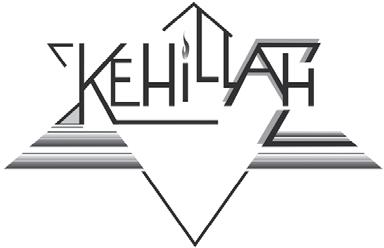

Everyone Welcome!

On Rosh Hashanah, 10 days before Yom Kippur, we read a section of Bereshit in which Hagar, Sarah’s handmaid and the mother of Ishmael, is alone in the desert, out of water for herself and her baby. She’s certain that they’ve lost all chance for survival, and, broken-hearted, she puts the child down and walks away from him, so that she doesn’t have to watch him die, and bursts into tears. God hears her weeping and opens her eyes — and suddenly she can see a well of water before her. Both she and the baby survive.


3400 North Dobson Road, Chandler, AZ 85224





Phone: (480) 897-3636

Email: info@tbsev.org
In a commentary on this Torah portion that appears in the Reconstructionist machzor, Rabbi Reena Spicehandler notes that the text doesn’t say that a well

























































































































































WILLMENG CONSTRUCTION, INC. has F/T position for Project Manager 2 in Phoenix, AZ. Duties: Mnge, coord, & supervise subcontrctrs, vendrs, & personnel to ensure work compltd on time w/in budget & qualty stdrds; Write bid pckgs to define prjct scope; Prep subcontrcts, P.O. agreemts, & cost cntrl budgets; Mnge monthly billing process.
















Requires: MS Constrctn Mgmt, Civil Eng, or rltd + 6 mos exp OR BS Constrctn Mgmt, Civil Eng, or rltd + 3 yrs







appeared in front of Hagar, but rather that she was suddenly able to see it. When we are trapped in a place where all we experience is fear, despair or hopelessness, we aren’t able to see the possibilities or openings around us, whether that’s a new opportunity or a literal life-saving spring of water. We can only see those possibilities when we open our eyes to them or sometimes, when someone opens our eyes for us.
Apple recipes perfect for Rosh Hashanah




LEAH CRESSWELL | CONTRIBUTING WRITER
very year, Rosh Hashanah comes around and it’s time to dig out all the apple and honey recipes to fill the new year with everything sweet. There are various beliefs as to where the apples and honey traditions originated, but for now, let’s just embrace them with this roundup of delicious apple recipes that are perfect for the New Year.

The season of teshuvah, of returning — and with it, the spiritual work that makes Yom Kippur so meaningful — is about undertaking the journey through

Here are two recipes for different variations of apple cake.
APPLE CAKE
LEAH KOENIG | MYJEWISHLEARNING














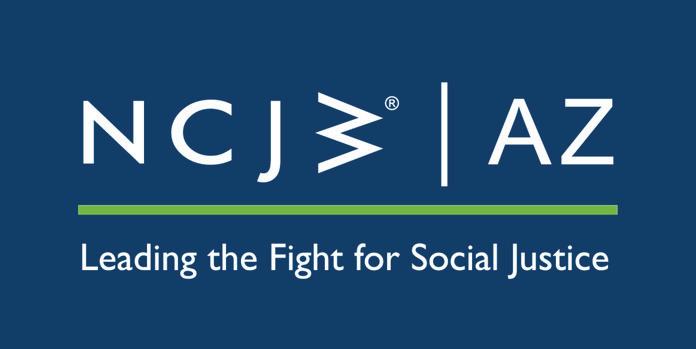
Everyone loves a great honey cake for Rosh Hashanah, but what about apple cake? This apple cake can also be poured into cups for muffins or made into healthier options by replacing flour with either whole wheat flour or ground flax seeds. Either way, it’s sure to be a beloved

Ingredients
3 cups Golden Delicious or Granny Smith apples, peeled, cored and choped
2 teaspoons vanilla
3 eggs










1 cup canola oil




2 cups sugar







the places of fear and despair until we can find the wells that open us up to everything around us that offers us a chance at renewal. Yom Kippur, for me, is about fully dedicating my heart and mind to that journey, year after year, prayer after prayer, breath after breath.
For me, it couldn’t be further from suffering. It’s the first delicate notes of the melody of Kol Nidre, as a congregation of hundreds holds its breath in perfect unison. It’s the first sip of water in a desert, pure and sweet. It’s a returning to the broken places, where we can still find the endless possibilities of wholeness. JN



ingredients. bowl, become Fold you can at a Pour pan Check is done out cool Then, bundt pan cake



Allow then sugar.
Recipes savory at recipes-that-are-perfect-for-the-new-year/. Kosher.com















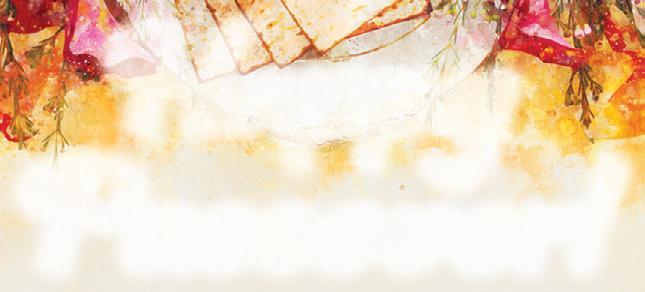
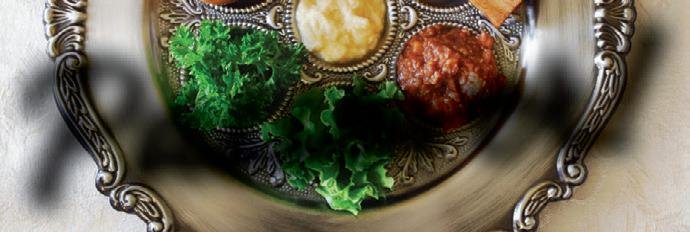











Turbinado sugar (for sprinkling on top)
Combine flour, salt, cinnamon, and baking soda in a medium bowl and set aside. In a second bowl, mix together sugar, oil, and vanilla. Add eggs one at a time and stir to combine. Pour wet mixture into the dry ingredients and stir until thoroughly combined. Fold in apples and walnuts (the batter will be thick).
Preheat oven to 350 degrees. Grease two loaf pans and spread half of the batter into each pan. Sprinkle the tops of each loaf with a little sugar and bake for approximately one hour, or until a toothpick stuck in the middle of the cake
Temple Beth Emeth OF SCOTTSDALE

www.tbescottsdale.org
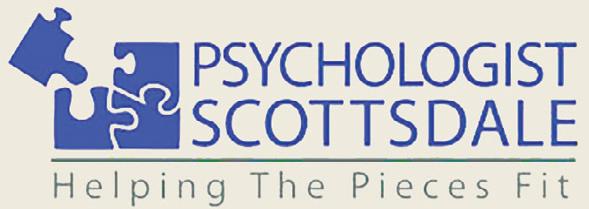


Our celiac friends deserve apple cake too! This cake may be missing the main ingredient of flour, but that certainly doesn’t stop it from being just as melt-inyour-mouth delicious as any other dessert! We think those without a gluten intolerance just might enjoy this recipe as well.
Ingredients
¼ cup coconut sugar or brown sugar
1 cup extra-virgin olive oil
2 large eggs, room temperature











2/3 cup honey
1 tsp vanilla extract



2.5 cups gluten-free baking flour
1 tsp ground cinnamon





1/8 tsp allspice
3 apples, peeled, cored and chopped into ¼-inch pieces (I recommend using a mixture of green and red apples.)

2/3 cup walnuts, finely chopped (optional)
Unsweetened plain almond milk (optional)


Directions
Preheat oven to 325 degrees. Grease and lightly flour a 9-inch bundt pan (nonstick, if you have one).
In a stand mixer, beat together the sugar and olive oil. Beat in the eggs, then the honey and vanilla. Turn off the stand mixer.
In a separate large bowl, stir together the gluten-free flour, baking powder, baking soda, cinnamon, salt, and allspice. Turn the stand mixer back on, and very slowly add the flour mixture to the wet
Challah While figured challah recipe dinner cinnamon, hit twist flavor
LaaLoosh Date Many going on pomegranate, so sweet, mouthwatering is it perfectly Apple One pair is possible you’re Rosh gather honey recipe! your this Leah Center Jewish Foundation Center

18 SEPTEMBER 15, 2023 JEWISH NEWS JEWISHAZ.COM
HOLIDAY www.smilesbyapdo.com L’shana Tova! Celebrate Rosh Hashana with Rango Honey. Wishing you a happy, healthy and sweet new year! MAY THE NEW YEAR BRING Health & Happiness High Holy Day Services. Contact Temple B'rith Shalom in Prescott at (928) 708-0018 VISIT US AT WWW.BRITHSHALOM-AZ.ORG L L’Shana Tova L’Shana 18 SEPTEM BER 16, 2022 JEWISH NEWS
exp. Bkgrd check reqd. Email resume to careers@willmeng.com, Incl Job Code WCLP-PM2 Celebrate Rosh Hashana with Rango Honey. Wishing you a happy, healthy and sweet new year! HIGH HOLIDAYS SPECIAL SECTION MPHILLIPS007 / E+ National Council of Jewish Women AZ Section info@ncjwaz.org Shana Tova! May You be Blessed for a Healthy & Happy New Year. L'Shana Tova! arizona.adl.org L’shana Tova www.lane-nach.com LANE & NACH, P.C. L’Shana Tova s hymson goldstein 14500 N. Northsight Blvd., Suite 101 Scottsdale, Arizona 85260 480-991-9077 y | Litigation Bankruptcy | Estate Planning | Intellectual Property New York 525 Chestnut Street, Suite 203 Cedarhurst, New York 11516 516-596-8366 www.scottsdale-lawyer.com For more info: 602-369-7667 www.congregationkehillah.org Best wishes for Swe N Yea Programs for all ages including Sippy Cup Shabbat Youth Education (YEP!), Teens, Young Professionals Adults Blessings for a Sweet New Year For more info: 602-369-7667 www.congregationkehillah.org Best wish for Sw N Yea Programs for all ages including Sippy Cup Shabbat Youth Education (YEP!), Teens Young Professionals Adults For more info: 602-369-7667 www.congregationkehillah.org Best wishes for a Swee New Year Programs for all ages including Sippy Cup Shabbat Youth Education (YEP!), Teens, Young Professionals Adults JEWISHAZ.COM JEWISH NEWS MARCH 26, 2021 21 Happy Passover 602-241-7870 www.azjhs.org Happy Passover www.lane-nach.com LANE & NACH, P.C. Happy Passover! Happy Passover! North Valley JewisH Community AssociatioN in Anthem 623-256-0658 from Gary Kravetz | Costco Team FLEET DIRECTOR RIGHT HONDA & LEASE RETENTION MANAGER FOR QUESTIONS AND ANSWERS? 7875 E FRANK LLOYD WRIGHT BLVD • SCOTTSDALE, AZ 85260 480-778-2510 DIRECT LINE • 602-722-8006 CELL • GKRAVETZ@RIGHTHONDA.COM Passover! WWW.BETHAMITEMPLE.ORG 602-369-7667 • info@congregationkehillah.org www.congregationkehillah.org Allison L. Kierman 14362 N. Frank Lloyd Wright Blvd., Ste. 1000 • Scottsdale, AZ 85260 480.719.7333 • www.kiermanlaw.com akierman@kiermanlaw.com Martin Keller, Ed.D., ABPP, FAACP 602-996-8619 | psychologistscottsdale.com 11020 North Tatum Blvd. | Phoenix, AZ 85028 Happy Passover! Bankruptcy | Estate Planning | Intellectual Property ETERANS POST 210 | 623-256-0658 Happy Passover w w w c o n g r e Happy goodmans.com Best Wishes for a Happy Passover www.jcrcphoenix.org jcrcphoenix JCRC_Phoenix חמס חספ גח Happy JEWISHAZ.COM JEWISH NEWS MARCH 26, 2021 21 Happy Passover 602-241-7870 www.azjhs.org Passover “Building Skylines Since 1955” Happy Passover www.lane-nach.com LANE & NACH, P.C. Passover! Passover! North Valley JewisH Community AssociatioN in Anthem 623-256-0658 from Gary Kravetz | Costco Team FLEET DIRECTOR RIGHT HONDA (PLATINUM LEVEL 3 YEARS IN A ROW) & LEASE RETENTION MANAGER FOR QUESTIONS AND ANSWERS? 7875 E FRANK LLOYD WRIGHT BLVD • SCOTTSDALE, AZ 85260 480-778-2510 DIRECT LINE • 602-722-8006 CELL • GKRAVETZ@RIGHTHONDA.COM HAPPY Passover! WWW.BETHAMITEMPLE.ORG Allison L. Kierman 14362 N. Frank Lloyd Wright Blvd., Ste. 1000 • Scottsdale, AZ 85260 480.719.7333 • www.kiermanlaw.com akierman@kiermanlaw.com Martin Keller, Ed.D., ABPP, FAACP 602-996-8619 | psychologistscottsdale.com 11020 North Tatum Blvd. | Phoenix, AZ 85028 Happy Passover! JEWISH WAR VETERANS OF SCOTTSDALE POST 210 | 623-256-0658 from Happy Passover! goodmans.com Happy Passover www.jcrcphoenix.org jcrcphoenix JCRC_Phoenix חמס חספ גח JEWISHAZ.COM JEWISH NEWS MARCH 26, 2021 21 Happy Passover 602-241-7870 www.azjhs.org Passover “Building Skylines Since 1955” Happy Passover www.lane-nach.com LANE & NACH, P.C. Passover! Passover! North Valley JewisH Community AssociatioN in Anthem 623-256-0658 from Gary Kravetz | Costco Team FLEET DIRECTOR RIGHT HONDA (PLATINUM LEVEL 3 YEARS IN A ROW) & LEASE RETENTION MANAGER FOR QUESTIONS AND ANSWERS? 7875 E FRANK LLOYD WRIGHT BLVD • SCOTTSDALE, AZ 85260 480-778-2510 DIRECT LINE • 602-722-8006 CELL • GKRAVETZ@RIGHTHONDA.COM HAPPY Passover! WWW.BETHAMITEMPLE.ORG Allison L. Kierman 14362 N. Frank Lloyd Wright Blvd., Ste. 1000 • Scottsdale, AZ 85260 480.719.7333 • www.kiermanlaw.com akierman@kiermanlaw.com Martin Keller, Ed.D., ABPP, FAACP 602-996-8619 | psychologistscottsdale.com North Tatum Blvd. | Phoenix, AZ 85028 Happy Passover! JEWISH WAR VETERANS OF SCOTTSDALE POST 210 | 623-256-0658 Happy Passover! goodmans.com www.jcrcphoenix.org jcrcphoenix JCRC_Phoenix חמס חספ גח JEWISHAZ.COM JEWISH NEWS MARCH 26, 2021 21 Happy Passover 602-241-7870 www.azjhs.org Happy Passover www.lane-nach.com LANE & NACH, P.C. Happy Passover! Happy Passover! North Valley JewisH Community AssociatioN in Anthem 623-256-0658 from Gary Kravetz | Costco Team FLEET DIRECTOR RIGHT HONDA (PLATINUM LEVEL 3 YEARS IN A ROW) & LEASE RETENTION MANAGER FOR QUESTIONS AND ANSWERS? 7875 E FRANK LLOYD WRIGHT BLVD • SCOTTSDALE, AZ 85260 480-778-2510 DIRECT LINE • 602-722-8006 CELL • GKRAVETZ@RIGHTHONDA.COM HAPPY Passover! WWW.BETHAMITEMPLE.ORG 5858 E Dynamite Blvd, Cave Creek 602-369-7667 • info@congregationkehillah.org www.congregationkehillah.org Allison L. Kierman 14362 N. Frank Lloyd Wright Blvd., Ste. 1000 • Scottsdale, AZ 85260 480.719.7333 • www.kiermanlaw.com akierman@kiermanlaw.com Martin Keller, Ed.D., ABPP, FAACP 602-996-8619 | psychologistscottsdale.com 11020 North Tatum Blvd. | Phoenix, AZ 85028 Happy Passover! Bankruptcy | Estate Planning | Intellectual Property 516-596-8366 www.scottsdale-lawyer.com JEWISH WAR VETERANS OF SCOTTSDALE POST 210 | 623-256-0658 Happy Passover from w w w c o n g r e g a t o n o r t z o n o r g arizona.adl.org Happy Passover! goodmans.com Best Wishes for a Happy Passover www.jcrcphoenix.org jcrcphoenix חמס חספ גח Happy Rosh Hashanah L’Shana Tova! Wishing you a Sweet and Happy New Year From the Jewish Community Relations Council www.jcrcphoenix.org jcrcphoenix JCRC_Phoenix
What is a fiduciary and what do they do?
MALA BLOMQUIST | MANAGING EDITOR
You may have seen a popular commercial for a moneymanagement firm that highlights that its financial advisors are fiduciaries and thus its clients are treated better. However, if you don’t know what the term fiduciary means you might not understand why. So, what is a fiduciary and what sets them apart from other financial advisors?
Jewish News posed these questions to local financial planning experts Frederick A. Schertenlieb, business development at Estate Management Services; Erin Itkoe, CPA, CFP, director of financial planning at Tarbox Family Office (she is also the vice-chair of the Center for Jewish Philanthropy of Greater Phoenix’s 2023 Tax and Legal Seminar to be held on Nov. 3 this year); Dan Doering, private wealth advisor at U.S. Bank; and Blake Koolick, CPA, partner at Scottsdale CPAs, PLLC. Schertenlieb defined a fiduciary as: A person or organization who acts on behalf of another person or persons. When you are named a fiduciary and accept the role, you are legally required to manage the person’s money and property for their benefit. As a fiduciary you are required to put your client’s best interest ahead of your own. Fiduciaries are expected to exercise a duty of care and a duty of loyalty to clients and are held to the highest standard of conduct. Fiduciaries have a bond of trust with another person who is known as the principal or beneficiary.
Some financial professionals who work for brokerage firms are bound only to a suitability standard but aren’t bound to work only in the best interest of their clients. “There is often confusion about fiduciary duty and suitability,” said Itkoe. “One of my favorite sayings highlights the differences: ‘Suitability means selling a suit that fits you. Fiduciary duty means it actually has to look good on you, too.’ A fiduciary duty means acting in the best interest of the client, whereas a suitability standard means having a reasonable belief that the recommendation is suitable for the client.”
There are many types of fiduciaries, including those that are court-appointed





to serve in the roles of personal representative, conservator or guardian. Fiduciaries can also serve under an agreement, such as trustees or as agents under a power of attorney document.

In Arizona, there are both public fiduciaries and licensed private fiduciaries. Licensed fiduciaries, whether public or private, are licensed by the Arizona Supreme Court and are regulated by the Administrative Office of the Courts. All fiduciaries, both licensed or anyone serving for a fee or not, are governed by State of Arizona law.

“Examples of fiduciary relationships are trustee and beneficiaries, personal representative and legatees, attorney and clients, board of directors and shareholders, guardians and wards, doctor and patients and real estate agent and buyer or seller,” said Schertenlieb.
Liabilities for fiduciaries can arise if they breach their fiduciary duties, mismanage assets or act negligently. “They can be held accountable for financial losses suffered by clients due to their actions,” said Doering.
Some examples of breach of fiduciary duty are fraud committed by the fiduciary, embezzlement by the fiduciary and negligence.
“Many fiduciaries serving in recent years have purchased fiduciary liability insurance as no matter how carefully fiduciary duties are administered, mistakes can be made,” added Schertenlieb.

Fiduciary liability coverage includes protection against claims such as conflicts of interest, improper advice, errors or


omissions, mismanagements or failure to monitor third parties.

An accusation of a breach of fiduciary duty can hurt the reputation of a professional, said Koolick. “If a breach of duty case proceeds to the courts, steeper consequences can result. A successful breach of fiduciary duty lawsuit can result in monetary penalties for direct damages, indirect damages and legal costs. A court ruling can also lead to industry discrediting, the loss of a license or removal from service,” he added.





A benefit of hiring a fiduciary is that the advisor is required to provide advice that is in their customers’ best interests, even if that necessitates suggesting a less expensive investment alternative or declining a commission.
“This can provide a higher level of trust and transparency compared to other financial planning professionals who may not have the same legal duty,” said Doering.


Itkoe added, “You always have the peace of mind that your overall financial plan and any recommendations are always based on what’s in your best interest.”
Many fiduciary advisors charge on a fee-only basis so that they earn money exclusively through the fees that their client pays for investment management services. However, possible drawbacks include higher fees due to the fiduciary’s stringent regulations they must adhere to, limited investment options, limited control and limited guarantees.
Jewish News is published by the Jewish Community Foundation of Greater Phoenix, a component of the Center for Jewish Philanthropy of Greater Phoenix.





SPECIAL SECTION ESTATE PLANNING JEWISHAZ.COM JEWISH NEWS SEPTEMBER 15, 2023 19
JN
Frederick A. Schertenlieb, Erin Itkoe, Dan Doering and Blake Koolick. COURTESY FREDERICK A. SCHERTENLIEB, ERIN ITKOE, DAN DOERING AND BLAKE KOOLICK
ERIN ITKOE • Tax Planning and Compliance • Multi-State Income Tax • International Tax • Estate, Gift and Trust Planning • Financial Statements • Strategic Business and Transactional Planning service be yond the number s ®
"SUITABILITY MEANS SELLING A SUIT THAT FITS YOU. FIDUCIARY DUTY MEANS IT ACTUALLY HAS TO LOOK GOOD ON YOU, TOO."
Julie Prue Cauich, CPA Victoria C. Harris, CPA
4110 N. Scottsdale Road, Suite 200 Scottsdale, Arizona 85251 480.946.0751 • HunterHagan.cpa
Todd A. Keilen, CPA Michael David Lemme, CPA
Bridget
B. Phillips, CPA
Estate planning and divorce
MALA BLOMQUIST | MANAGING EDITOR
Divorce, even when amicable, is never easy. However, it is not something one can afford to look away from. Jennifer Moshier, partner and managing attorney with Moshier Law in Phoenix, shared one dramatic example.

She was contacted by a friend of the family of a deceased woman. “Her husband had filed for divorce, but while she was ill, he brought her soup. She was hospitalized by Saturday,” said Moshier. Since it was a holiday weekend, the courts were closed until Tuesday. By Tuesday, the woman had died and her husband had declined an autopsy, ordered her cremated and he inherited the entire community estate and assumed care of their two children. “I can only imagine the strain their maternal relatives suffered trying to maintain any connection to those children,” she said.
That is an extreme example, but a few local estate-planning experts explained to Jewish News how important it is to pay attention to the details during divorce.
In the United States, between 35-50% of first-time marriages end in divorce and according to the Centers for Disease
Control and Prevention, in Arizona the marriage rate is 5.4 per 1,000 people and the divorce rate is 2.7. Divorce can not only be emotionally taxing, it can also be financially difficult.

The State of Arizona has an automatic estate plan for everyone, a schedule of how your assets will be distributed if you die and who takes priority in the order of importance if you need a guardian


to protect your health or conservator to manage your money. Most people will nominate a spouse to make decisions for them if and when they are suddenly unable.
Filing for divorce, alone, does not legally change these designations. Arizona Revised Statute §14-2802 requires that for the revocation to happen, the divorce must be finalized. If two people are divorcing and one dies, but the divorce is not finalized, the person who died was still legally married. If two people are divorcing and one becomes incapacitated, the spouse is the statute’s nominated guardian or conservator. That means a spouse, even after a divorce filing, could decide to take someone off life support, inheriting everything.
“If you do not want your former spouse to inherit or make financial and medical decisions for you, it’s important to identify who your new agents are,” said Allison L. Kierman, professional estate planning and probate attorney with Kierman Law in Scottsdale. “Generally, when you divorce you want to update your estate plans to identify new powers of attorney and other agents, new beneficiaries for assets and if you have a trust, you should transfer the assets out of the trust, as agreed upon in the divorce, and revoke the existing trust.”
If you had a trust together, that trust
will terminate, and all assets will be distributed to the parties pursuant to the dissolution order. However, if you had a trust together you likely also had a “pourover” will that leaves all your estate assets to that joint trust.
“If the trust is terminated and the will is never updated this can create significant issues and unintended consequences in administering your estate and final wishes,” added Stephanie A. Bivens, certified elder law attorney (CELA) with Bivens & Associates in Scottsdale and Mesa. “As such, it is imperative that you create a new will and/or trust after divorce.”
Parents can also include language in their own will or revocable trust that will establish a trust for their children under which the child’s inheritance will be managed and used for the child’s benefit. These “testamentary trusts” have several advantages, such as designating a trustee to manage the inherited assets while children are minors or young adults, creditor protection and protection of assets in the event of an adult child’s divorce.
“Some ex-spouses want to agree between them as to when the children can inherit,” said Kierman. “Other couples completely disagree about inheritance distributions and need to create their own estate plans.”
Your estate plan needs to be tailored to your unique situation. “I am married, and I have changed my designations multiple times as my husband and I grew more solidified in our relationship,” said Moshier. “I also amended provisions for beneficiaries as I became closer to the children he had from his prior marriage. Blended families are a special situation.”

It is crucial to update your estateplanning documents and beneficiary designations after divorce to avoid unintended consequences. Updating your estate plan ensures that your wishes are accurately reflected and that your assets will be distributed according to current intentions, providing you and those you care about with peace of mind. JN

SPECIAL SECTION
ESTATE PLANNING 20 SEPTEMBER 15, 2023 JEWISH NEWS JEWISHAZ.COM
ESTATE? PROBATE? TRUST? WE OFFER: • Marshaling & management of real & personal property • Personal property inventory services • Vital document & asset searches • Hoarding/clutter remediation • Valuation & liquidation services • Services provided locally, statewide & nationally Fredrick A. Schertenlieb Business Development 602-679-3383 • fred@ems-az.com • www.ems-az.com AZ License #20550 & #20660 • Insured • Bonded Discover how Estate Management Services can assist you. Call us today for a free consultation. and trust-owned property services for our clients’ personal and real property challenges. We serve and support
“IF YOU DO NOT WANT YOUR FORMER SPOUSE TO INHERIT OR MAKE FINANCIAL AND MEDICAL DECISIONS FOR YOU, IT’S IMPORTANT TO IDENTIFY WHO YOUR
NEW AGENTS ARE.” ALLISON L. KIERMAN
Jennifer Moshier, Allison L. Kierman and Stephanie A. Bivens. COURTESY OF JENNIFER MOSHIER, ALLISON L. KIERMAN AND STEPHANIE A. BIVENS.
Welcoming a new Torah
On Sept. 4, Chabad of Arizona celebrated the completion of “Shaina’s Unity Torah” in memory of Shaina Welner. Because it was commissioned as a “unity” Torah, it is smaller and lighter which enables it to be held by both the very young and the elderly, and thus is more inclusive.
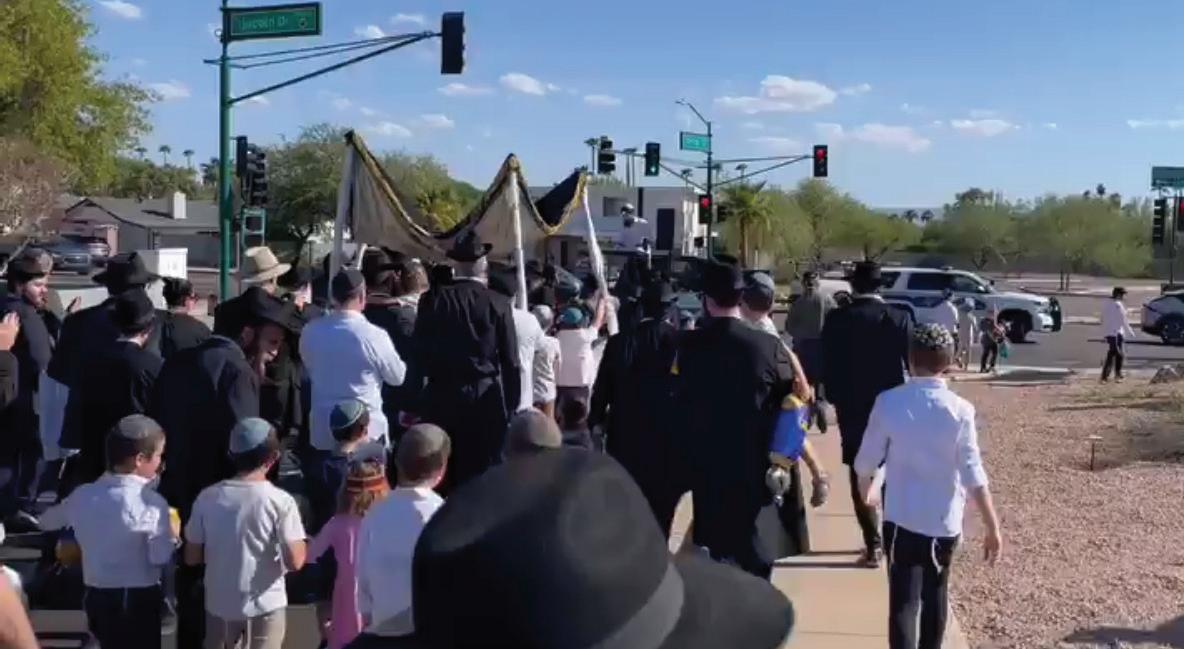
Getting to know you
On Aug. 13, Temple Beth Shalom of the West Valley held a successful open house. Pictured left to right are Spencer Kirschner and his daughters as they talk to Rabbi Dana Evan Kaplan and Outreach Committee Co-Chair Jonathan Green. COURTESY OF BERNIE ARUM

Movie night
A few friends from Scottsdale’s Congregation Beth Israel and Shayna Maidels had a great time grabbing dinner and seeing “Golda” together. Pictured from left: Kimberly Ruck, Helene

and
Where is your Jewish News? Virginia edition

Rochel Hayman and Barry Lischinsky, the new National Commander of the Jewish War Veterans, hold a copy of the Jewish News while attending the Jewish War Veterans 124th Annual National Convention, Aug. 18-23, 2019 in Richmond, Virginia. Hayman is on the NEC (National Executive Committee) of the Department of the Southwest of the JWV and past Commander of Scottsdale Post 210 in Phoenix.

Preparing for the High Holidays
On Friday, Sept. 1, the Bureau of Jewish Education of Greater Phoenix partnered with local shops and vendors to celebrate the High Holidays at a holiday bazaar held at Pardes Jewish Day School in Scottsdale. Those who came enjoyed giveaways, crafts, parachute play, face painting, balloons, a jump house and more.

COMMUNITY This COMMUNITY page features photos of community members around the Valley and the world. Submit photos and details each week to editor@jewishaz.com by 10 a.m. Monday.
COURTESY
OF MARINA AWERBUCH
COURTESY OF CHABAD OF
ARIZONA
Harty Miracle, Helene Diamond
Beth Sklar. COURTESY OF JONI WIEDERMAN SCHAFER
PHOTO COURTESY OF JEWISH WAR VETERANS SCOTTSDALE POST 210 JEWISHAZ.COM JEWISH NEWS SEPTEMBER 15, 2023 21
Featured Event
THURSDAY, SEPT. 28
JFCS Puttin’ for a Purpose Charitable Putting Tournament:
6:30-9:30 p.m. Putting World, 16259 N. Scottsdale Road, Scottsdale. Join Jewish Family & Children’s Service for a golf tournament to raise funds for the services that JFCS provides to more than 40,000 children and adults in the Greater Phoenix area. For more information, visit jfcsaz.org.

Events
TUESDAY, SEPT. 19
The Current State of Israel: An Open Discussion: 10-11:30 a.m. East Valley Jewish Community Center, 908 N. Alma School Road, Chandler. Join Rabbi Michael Beyo, EVJCC CEO, for the discussion. Cost: free. For more information, visit evjcc.org/ tuesdays.
Family Scrub Making for Asylum Seekers: 5:30-8 p.m. Valley Beit Midrash, 7580 E. Gray Road, Scottsdale. Join Arizona Jews for Justice for an evening of creating cleansing scrubs for asylum seeking families. All ages (6 and up) are welcome. Cost: free. For more information, visit arizonajewsforjustice.org.
THURSDAY, SEPT. 21
The Gifts of Imperfection: Brene Brown through a Kabbalah Lens: 1-2 p.m. Online. Join Valley Beit Midrash for a virtual presentation by Melanie Gruenwald, executive director of Kabbalah Experience. Cost: $18. For more information, visit valleybeitmidrash.org.
SUNDAY, OCT. 1
Sukkot Celebration: 6-8 p.m. Temple Beth Shalom of the East Valley, 3400 N. Dobson Road, Chandler. Join TBSEV for its annual BBQ Sukkot celebration with Havdallah and activities. For more information, visit tbsev. org.
WEDNESDAY, OCT. 4
Sips in the Sukkah: 5:30-7 p.m. Ina Levine Jewish Community Campus, 12701 N. Scottsdale Road, Scottsdale. Join the Bureau of Jewish Education of Greater Phoenix for wine and appetizers in the sukkah and a silent auction to support the work of the BJE. Cost: $18. For more information, visit bjephoenix.org/ community-celebrations.
FRIDAY, OCT. 6
The Holocaust Did Happen: Lucky #29: 10 a.m.-12 p.m. Online via Zoom. Join the Arizona Jewish Historical Society for a presentation featuring Holocaust survivor Simon Shpitalnik. For more information, contact Anthony Fusco at afusco@azjhs.org.
SUNDAY, OCT. 8
Israeli Film Series: 8 a.m.-8 p.m. Online. Join the East Valley Jewish Community Center for the film, “Barren.” Sign up to receive the link and watch it from home anytime that day. Cost: free. For more information, visit evjcc.org/film/.
MONDAY, OCT. 9
FIDF Event: 7-8:30 p.m. Congregation Beth Israel, 10460 N. 56th St., Scottsdale. Join the Friends of the Israel Defense Forces for a presentation by Major General Nadav Padan, member of Israel Defense Forces' executive leadership, who will speak about the situation in Israel and the Middle East. RSVP is required. For more information, contact Lesley.Platcha@fidf.org.
SUNDAYS
B.A.G.E.L.S: 9-11 a.m.; last Sunday of the month. Valley of the Sun Jewish Community Center, 12701 N. Scottsdale Road, Scottsdale. Grab a bagel and a cup of coffee at Bagels And Gabbing Every Last Sunday and enjoy some time with your friends and make new ones. You must register to attend. Bagels and coffee will be provided. Cost: free for members, $5 for guests. For more information and to register, visit vosjcc.org.
THURSDAYS
Storytime at Modern Milk: 9:30 a.m. Modern Milk, 13802 N. Scottsdale Road, #163, Scottsdale. Storytime for babies, toddlers and preschoolers. Integrates children’s books and songs while giving parents new ideas for play. Cost: $5. For more information and to register, visit modernmilk.com/after-baby.
Meetings, Lectures & Classes
SUNDAYS
Chassidus Class: 9 a.m. Online. Learn about the Chasidic movement with Rabbi Yossi Friedman. Cost: Free. For more information, visit chabadaz.com.
Jewish War Veterans Post 210: 10 a.m. Online. Any active duty service member or veteran is welcome to join monthly meetings, every third Sunday. Cost: free. For more information, email Michael Chambers at c365michael@yahoo.com.
Sundays are for the Family Weekly Feed: 3-5 p.m. Tempe Beach Park, 80 W. Rio Salado Pkwy., Tempe. Join Arizona Jews for Justice and AZ HUGS for the Houseless every Sunday to serve food to those in need. For more information and to RSVP, email Arizonajews4justice@gmail.com.
Anxiety in the Modern World: 6 p.m. Online. Learn the secrets of the Torah for living stress-free in the current environment with Rabbi Boruch of Chabad of Oro Valley. Cost: free. Tune in using this link: zoom. us/j/736434666. For more information, visit chabadaz.com.
MONDAYS Ethics of Our Fathers: 7 p.m. Online. Learn with Rabbi Zalman Levertov. Tune in at: bit.ly/2Y0wdgv. Cost: free. For more information, visit chabadaz.com.
Quotable Quotes by our Sages: 7 p.m. Online. Learn with Rabbi Shlomy Levertov. Tune in at: JewishParadiseValley.com/ class. Cost: free. For more information, visit chabadaz.com.
Partners in Torah: 7:30 p.m. Online. Join a growing group of inspired learners with Project Inspire. Cost: free. Tune in at: us04web.zoom.us/j/3940479736#success, password is 613. For more information, email Robin Meyerson at robin@projectinspireaz. com.
Learning to Trust in God: 7:30 p.m. Online. Learn with Rabbi Yossi Friedman. Tune in at: ChabadAZ.com/LiveClass. Cost: free. For more information, visit chabadaz.com.
Torah & Tea: 7:30 p.m. Online. Learn with Rabbi Yossie Shemtov. Cost: free. For more information, visit Facebook.com/ ChabadTucson.
TUESDAYS
Let’s Knit: 1:30 p.m. Ina Levine Jewish Community Campus, 12701 N. Scottsdale Road, Scottsdale. Share the pleasure of knitting, crocheting, etc. outside the social hall in the campus. Can’t knit? They will teach you! Every level welcome. Cost: free. For more information, visit vosjcc.org.
Maintaining an Upbeat Attitude: 7 p.m. Online. A class exclusively for people in their 20s and 30s, learn how Jewish Mysticism can help with your attitude with Rabbi Shlomy Levertov. Cost: free. Tune in at: JewishParadiseValley.com/YJPclass. For more information, visit chabadaz.com.
WEDNESDAYS
History of the Jews: 11 a.m. Online. Learn the Jewish journey from Genesis to Moshiach with Rabbi Ephraim Zimmerman. Cost: free. Tune in here: zoom.us/j/736434666. For more information, visit chabadaz.com.
Torah Study with Temple Beth Shalom of the West Valley: 11 a.m.-12:30 p.m. Online. Weekly study group explores that week’s portion and studies different perspectives and debates the merits of various arguments. Intended for adults, Torah study is open to students of all levels. For more information, contact the TBS office at 623-977-3240.
Happiness Hour: 11:30 a.m. Online. Class taught by Rabbi Pinchas Allouche that delves into texts and references culled from our traditions to address a relevant topic. For more information or to join, visit cbtvirtualworld.com.
Torah Study with Chabad: 12 p.m. Online. Take a weekly journey of Torah with Rabbi Yossi Levertov. Cost: free. For more information, visit chabadaz.com.
Lunch & Learn: 12:15 p.m. Online. Grab some food and learn with Rabbi Yehuda Ceitlin. Cost: Free. Get Zoom link by emailing info@ chabadtucson.com. For more information, visit chabadtucson.com.
The Thirteen Petalled Rose: 1 p.m. Online. Kabbalah class that studies “The Thirteen Petalled Rose” by Rabbi Adin Even-Israel Steinsaltz, focusing on the many concepts of Kaballah and Jewish Mysticism and applying them to everyday life. For more information or to join, visit cbtvirtualworld.com.
Mahjong: 1:30-3:30 p.m. East Valley Jewish Community Center, 908 N. Alma School Road, Chandler. Come play mahjong each week. For all levels. Cost: free; registration required at evjcc.org/mahjong/.
JACS: 7:30-8:30 p.m. Valley of the Sun Jewish Community Center, 12701 N. Scottsdale Road, Scottsdale. In person and via Zoom support group for Jewish alcoholics, addicts and their friends and family on the first and third Wednesdays of the month. Cost: Free. For more information, email jacsarizona@gmail. com or call 602-692-1004.
Words & Whiskey: 8:30 p.m. Online. Learning session for men. Cost: Free. To RSVP, email rmollenaz@gmail.com or call/text 310-709-3901.
THURSDAYS
Ladies Torah & Tea: 10:30 a.m. Online. Learn about the women of the Torah with Mrs. Leah Levertov. Cost: free. Tune in at: ourjewishcenter.com/virtual. For more information, visit chabadaz.com.
Talmud - Maakos: 11 a.m. Online. Learn with Rabbi Shlomy Levertov. Cost: free. Tune in at: JewishParadiseValley.com/YJPclass. For more information, visit chabadaz.com.
Mindfulness Gatherings: 12 p.m. Online. Hosted by Hospice of the Valley via Zoom. Cost: free. To join by phone, dial 1-253-2158782, meeting ID 486 920 2119#, to get the Zoom link or for further questions contact Gill Hamilton at ghamilton@hov.org or 602-748-3692.
CALENDAR
22 SEPTEMBER 15, 2023 JEWISH NEWS JEWISHAZ.COM COURTESY OF JEWISH FAMILY & CHILDREN’S SERVICE
CALENDAR
The Science of Everything: 4 p.m. Online. Explore the most fundamental work of Chassidut: the Tanya, with Rabbi Boruch. Cost: free. Tune in at: zoom.us/j/736434666. For more information, visit chabadaz.com.
Teen Discussions: 7-8:30 p.m. Online. Learn with Rabbi Tzvi Rimler. Cost: free. Tune in at cteen.clickmeeting.com/east-valley. For more information, visit chabadaz.com.
SATURDAYS
Saturday Mindfulness Gatherings: 9:30 a.m. Online. Hosted by Hospice of the Valley. To join by phone, dial 1-253-215-8782, meeting ID 486 920 2119#. To get the Zoom link or for more information, contact Gill Hamilton at ghamilton@hov.org or 602-748-3692.


Book Discussion: 1:30-2:30 p.m. Online. Join Or Adam Congregation for Humanistic Judaism on the third Saturday of every month for a book discussion. For more information and to register, contact oradaminfo@gmail.com.
Shabbat
FRIDAYS
Shabbat in the Park: 10-11 a.m. Cactus Park, 7202 E. Cactus Road, Scottsdale. Join the Bureau of Jewish Education of Greater Phoenix monthly for music, parachute play, crafts and a family Shabbat experience. For more information, visit bjephoenix.org.
Welcome Shabbat: 11-11:30 a.m. Online.
Celebrate Shabbat with the JFCS Virtual Center for Senior Enrichment. Each week a different guest host will lead the program with song and celebration. Cost: free. For more information, visit jfcsaz.org/cse.
Shabbat at Beth El: 11-11:45 a.m. Beth El Phoenix, 1118 W. Glendale. Ave., Phoenix.
Celebrate Shabbat with songs, blessings and teachings with Rabbi Stein Kokin the first Friday of every month. Special guests will be welcoming Shabbat during the remainder of the month. For more information or to join, visit bethelphoenix.com.
Erev Shabbat Service: 5:30 p.m. Online.
Rabbi Alicia Magal will lead a service livestreamed for members of the Jewish Community of Sedona and the Verde Valley. Cost: free. For more information and to obtain the Zoom link, visit jcsvv.org/contact.
Shabbat Services: 5:30 p.m. nosh, 6:15 p.m. service; morning varying dates and times. Temple Chai, 4645 E. Marilyn Road, Phoenix. For more information, contact Sheana Abrams at (602) 971-1234 or sabrams@ templechai.com.
Pre-Shabbat Kiddush Club: 6 p.m. Online. Say Kiddush with Rabbi Mendy Levertov. Cost: free. Tune in here: ourjewishcenter. com/virtual. For more information, visit chabadaz.com.
Shabbat Services: 6 p.m; 9:30 a.m. Congregation Or Tzion, 16415 N. 90th St., Scottsdale. Services are also live streamed at otaz.org/livestream. For more information about services, events and membership, visit congregationortzion.org or call 480-342-8858.
Shabbat Services: 6:15 p.m; 10 a.m. Congregation Beth Israel, 10460 N. 56th St., Scottsdale. Services held in the Goldsmith Sanctuary. Participants must pre-register by Thursday at 5 p.m. Priority will be given to members first and then guests. If there are more requests than available seats a lottery system will be used. For more information
or to make a reservation, visit cbiaz.org/ shabbat-services.
Kabbalat Shabbat and/or Shabbat morning service: 6:30 p.m.; 10 a.m.; dates vary. Congregation Kehillah, 5858 E. Dynamite Blvd., Cave Creek. Join Rabbi Bonnie Sharfman and cantorial soloists Erica Erman and Scott Leader either in person or via Zoom. For safety reasons, please register ahead of time. For dates, visit congregationkehillah.org/event/. Register by emailing info@congregationkehillah.org.
Third Friday Shabbat: 7-9 p.m. Group meets at a North Scottsdale location. The Desert Foothills Jewish Community Association hosts a Shabbat service followed by a program. Contact Andrea at 480-664-8847 for more information.
Shabbat Services with Sun Lakes: 7 p.m. Sun Lakes Chapel, 9240 E. Sun Lakes Blvd. North, Sun Lakes. Sun Lakes Jewish Congregation conducts services on the second Friday of the month. For more information, contact 480-612-4413.
Shabbat Services with Beth Ami Temple: 7:30 p.m. Gloria Christi Federated Church, 3535 E. Lincoln Dr., Paradise Valley. Rabbi Alison Lawton and Cantorial Soloist Michael Robbins lead Shabbat services twice a month. For more information, visit bethamitemple.org.
Seniors
MONDAYS
Fitness Xpress Series with Zoe: 11-11:30 a.m. Online. Presented by JFCS Center for Senior Enrichment. Workout features weight and band exercises as well as yoga poses. Exercises will be demonstrated standing, but can also be done sitting in a chair. Cost: free. For more information, visit jfcsaz.org/ cse.
Sip & Schmooze: 11 a.m. milk + honey, 12701 N. Scottsdale Road, Scottsdale. Sip on kosher coffee or tea, enjoy a pastry and schmooze every second Monday of the month. RSVP appreciated to chani@sosaz. org or 602-492-7670. For more information, visit sosaz.org.
Featured Presentation: 12:30 p.m. Online. Join Smile on Seniors Mondays and Wednesdays to learn from a variety of presenters about topical issues, like Q&As with medical professionals, entertainers and lectures. Cost: free. For more information, visit sosaz.org/virtual or email Rabbi Levi Levertov at levi@sosaz.org.
TUESDAYS
Movie Discussion Group: 11 a.m. Online. Join Smile on Seniors on the third Tuesday of every month hosted by Issy Lifshitz. Cost: free. For full details and the movie of the month visit sosaz.org/virtual or email Rabbi Levi Levertov at levi@sosaz.org.
WEDNESDAYS

Fitness Fun with Zoe: 10-10:45 a.m. Online. Presented by JFCS Center for Senior Enrichment. Workout features light chair exercises with optional weights. Cost: free. For more information, visit jfcsaz.org/cse.
Chair Yoga with Zoe: 11-11:45 a.m. Online. Presented by JFCS Center for Senior Enrichment. 45-minute chair yoga class. No prior yoga experience required. Cost: free. For more information, visit jfcsaz.org/cse.
THURSDAYS Memory Cafe: 10-11 a.m. first Thursday; 1-2 p.m. third Thursday. Online. Presented by Jewish Family & Children’s Service. Program for those with changes in their thinking or memory, mild cognitive impairment due to Alzheimer’s disease or a related disorder, along with their care partners. For more information, visit jfcsaz.org/our-services/ older-adult-services/memory-cafe/.
In the Kitchen with Benita: 12:30 p.m. Join Smile on Seniors on the fourth Thursday of every month for some delicious cooking or baking fun! Cost: free. For full details visit sosaz.org/virtual or email Rabbi Levi Levertov at levi@sosaz.org.
FRIDAYS
Welcome Shabbat: 11-11:30 a.m. Online. Celebrate Shabbat with the JFCS Virtual Center for Senior Enrichment. Each week a different guest host will lead the program with song and celebration. Cost: free. For more information, visit jfcsaz.org/cse.
Sit or Stand Ballet Class: 12-12:45 p.m. Online. Presented by JFCS Center for Senior Enrichment. Jennifer Cafarella Betts and Friends from Ballet Theatre of Phoenix teach this class. Grab a chair or you can stand next to a chair or counter. Cost: free. For more information, visit jfcsaz.org/cse.
Musical Friday: 12:30 p.m. Online. Join Smile on Seniors on the first Friday of every month for a musical presentation. Cost: free. For full details visit sosaz.org/virtual or email Rabbi Levi Levertov at levi@sosaz.org. JN
GINNY STADWISER
Ginny Stadwiser of Encinitas, California died on Sept. 2, 2023. She was 82. Ginny was born in Davenport, Iowa.
Ginny is survived by her husband, Bruce; sons Mark and Steve Stadwiser; sister, Susan Geifman; and four grandchildren.
A celebration of life will be held on Sept. 30, 2023 in Encinitas, California. Donations in her name can be made to The Assistance League of Rancho San Dieguito (assistanceleague.org/ranchosan-dieguito/).
JEWISHAZ.COM JEWISH NEWS SEPTEMBER 15, 2023 23
MILESTONES OBITUARY SHARE YOUR ENGAGEMENT, WEDDING, BIRTH, BAR/BAT-MITZVAH ANNOUNCEMENT AND ANY OTHER SIMCHA ON BOTH JEWISHAZ.COM AND THE WEEKLY JEWISH NEWS ... FOR FREE . JEWISHAZ.COM FOR SALE: Desirable location in JACOB LOT 655 – 656- ALL INCLUSIVE Limited space as Jacob area is sold out except for estate lots Call today for pricing and viewing appointments. EDDIE: 480-407-7978 Mt Sinai Cemetery
The Gifts of Imperfection: Brene Brown through a Kabbalah Lens

Rain, Nostalgia, and Empathy: Liturgical Poems for the Holiday of Sukkot Dr. Yitz Landes
2023 @ 1:00 pm PT
Judaism & Religious Diversity: Global Meetings with Muslims, Hindus, and Buddhists


Rabbi Dr. Alan Brill Thursday,
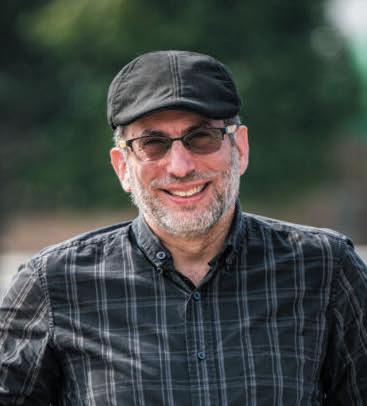





Mayko-mashmelon: A Survey of Yiddish
Art Song
Anthony Russell
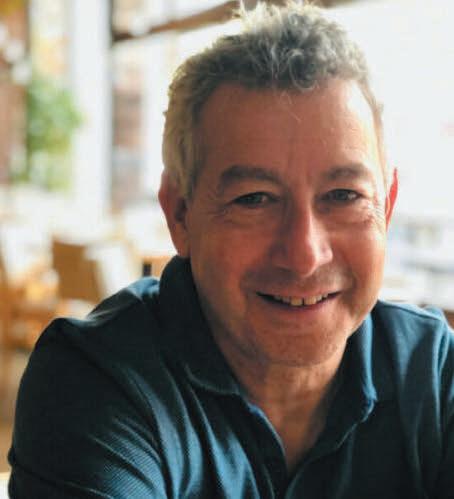
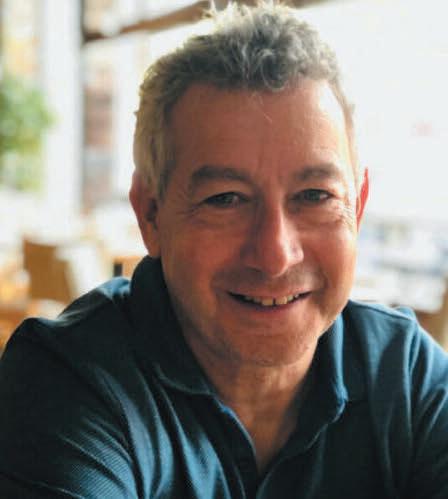
Thursday, October 26, 2023 @ 1:00 pm PT
The Sacred Earth: Jewish Perspectives on our Planet
Rabbi Andy Kahn
Thursday,
16, 2023
But What If I Love The Greeks?!: Chanukah for Philosophers
Rabbanit Leah Sarna
Thursday, December 14, 2023 @ 1:00 pm MT
The Healing Power of Storytelling
Maggid Jim Brulé

Thursday, January 11, 2024 @ 1:00 pm MT
ZEICHICK FAMILY LECTURE: A Debate: Is Judaism Liberal or Conservative?


Rabbi David Saperstein & Dr. Tevi Troy

Sunday, October 15, 2023 @ 7:00 pm PT
IN-PERSON & VIRTUAL

Women’s Sexual Assertiveness: An exploration of Talmudic perspectives
Rabbi Sarit Horwitz





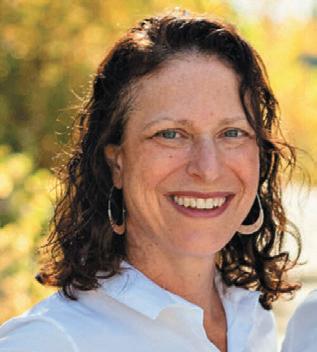

Thursday, November 2, 2023 @ 1:00 pm PT
Antisemitism: Why is it still around and whose fault is it?
Avi Posen
Monday, November 20, 2023
Radical Jewish Views of God: Maimonides vs Spinoza
Rabbi Micah Streiffer
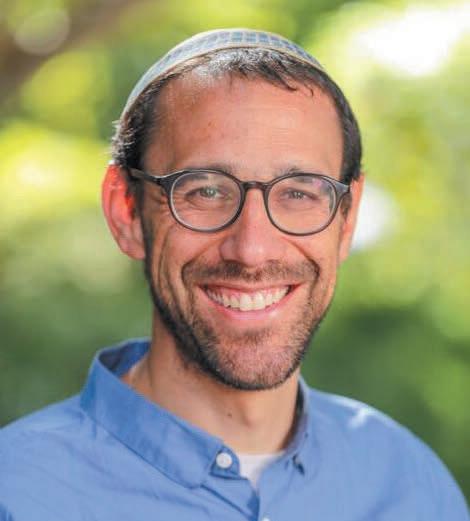
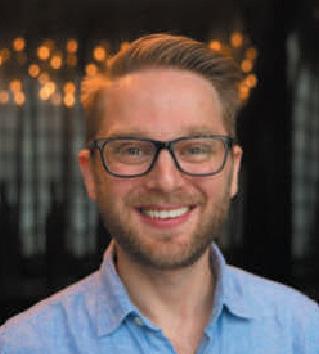
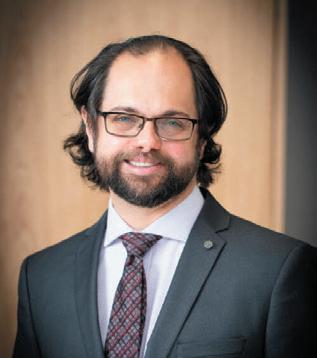



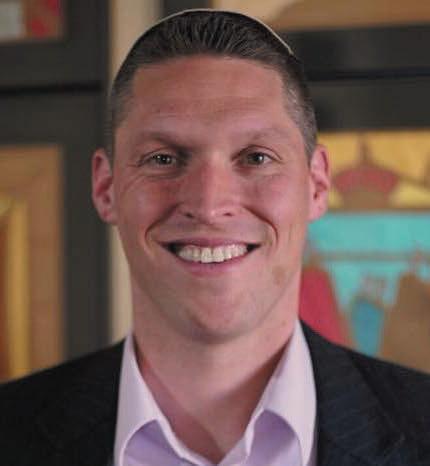
Thursday, December 21, 2023 @ 1:00 pm MT
Food, Clothing, and Shelter: Human Rights or Charity?
Rabbi Shlomo Levin
Thursday, January 18, 2024 @ 1:00 pm MT
Why Should Jews Care About a New Interpretation of the (Christian) “Apostle” Paul?
Dr. Mark Nanos
Thursday, February 15, 2024 @ 1:00 pm MT
History of Jews in Uganda & Their Sukkot Experience Rabbi Gershom Sizomu Thursday,


Mystical Hebrew Letters Dr. David Sanders
Highlights of 50+ Years of Women in the Rabbinate

Rabbi Mary Zamore
Tuesday, October 24, 2023 @ 7:00 pm PT IN-PERSON & VIRTUAL
Jews on the Move: The geographic dimension of Jewish survival in North America
Michael Weil Thursday, November 9, 2023 @ 1:00 pm MT


Who is in charge? Philosophy of halakhah through the eyes of Rabbi Joseph Soloveitchik and Rabbi Moshe Feinstein
Rabbi Zachary Truboff
Thursday, November 30, 2023 @ 10:00 am MT
When “The Hands of Esau” replace “Love the Stranger”: The Corruption of Jewish Power
Rabbi Avidan Freedman
Thursday, December 28. 2023 @ 10:00 am MT
Jews, Judaism, and anti-Judaism in the Gospel of John

Dr. Adele Reinhartz

Thursday, February 1, 2024 @ 1:00 pm MT
SHERMAN MINKOFF MEMORIAL LECTURE: Ancient Wisdom to Mend Our Broken Hearts and World

in
Introduction to Dreams and Kabbalah Dr. David
Standing Out or Blending In? Passing vs. Looking Jewish in Texts and Today
Rav Sarah Mulhern
Thursday, February 8, 2024 @ 1:00 pm MT
Women’s Empowerment = Jewish Empowerment
Chancellor Shuly Rubin Schwartz
Thursday, April 4, 2024 @ 1pm PT

HEADLINES 24 SEPTEMBER 15, 2023 JEWISH NEWS JEWISHAZ.COM Learn with Valley Beit Midrash All Season Long Almost all events on Zoom, just $18 per event! Season Pass Holders enjoy unlimited attendance for $45 a month Learn More at www.ValleyBeitMidrash.org Ruach Hamidbar
Great Philosophers & what they mean for Judaism!
40-CLASS SERIES 40
Tuesdays @
PT
Rabbi Dr. Shmuly Yanklowitz
10:00 am
Thursday, September
@
pm PT
Melanie Gruenwald
21, 2023
1:00
October
PT
5, 2023 @ 10:00 am
Thursday, October 19,
@
PT
December
@ 1:00 pm MT
2023
1:00 pm
Finding Light
Darkness Melanie Gruenwald Thursday,
7, 2023
Thursday, January 4, 2024 @ 1:00 pm MT
Sanders
Rabbi
Thursday, February 22, 2024 @ 7:00 pm MT IN-PERSON
VIRTUAL
Sharon Brous
&
September
Thursday,
28,
@ 10:00 am MT
@
Wednesdays, November 8, 15, 22, 28 & December 6, 2023 @ 1:00 pm MT
October 12, 2023
1:00 pm PT 5-CLASS SERIES Self & Mystical Identity in Sixteenth Century Kabbalah Professor Eitan P. Fishbane
@
November
1:00 pm MT







































 SHANNON LEVITT | STAFF WRITER
SHANNON LEVITT | STAFF WRITER






































































































































 MALA BLOMQUIST | MANAGING EDITOR
MALA BLOMQUIST | MANAGING EDITOR

 RABBI DAVE LEVY | JTA
RABBI DAVE LEVY | JTA












































































































































































































































